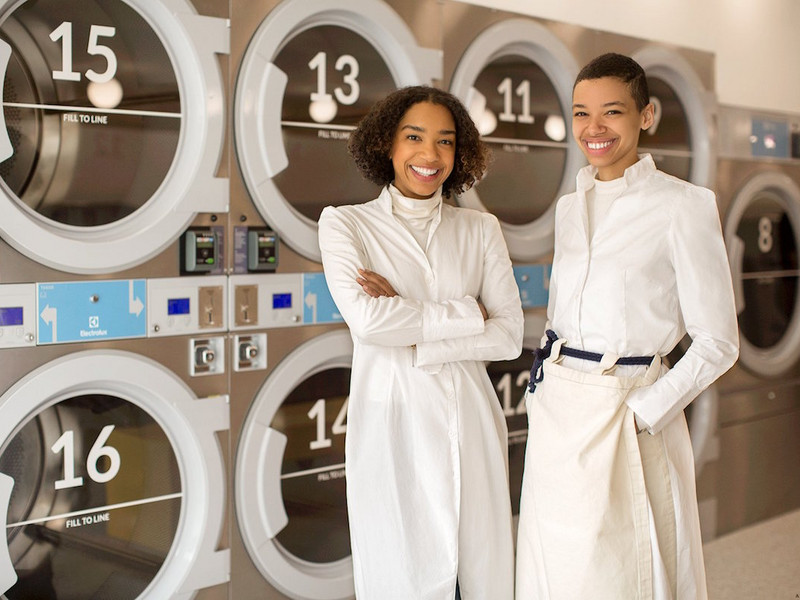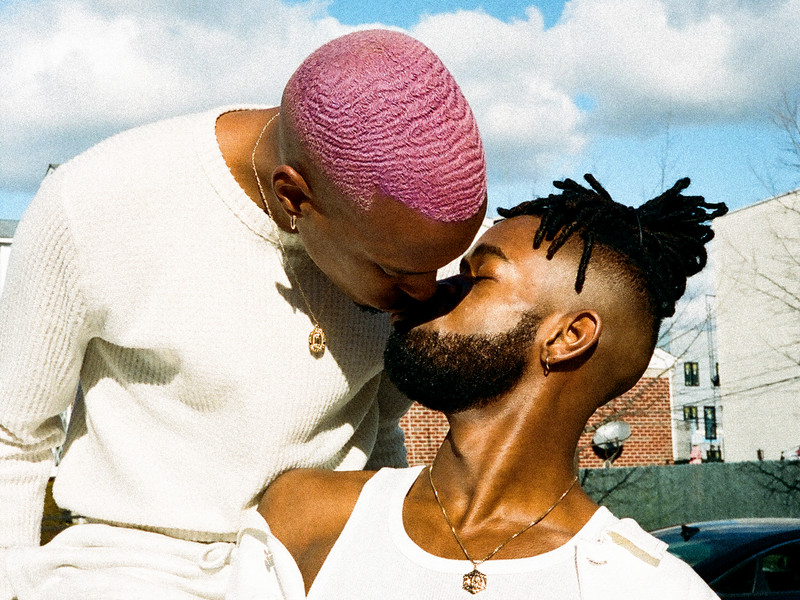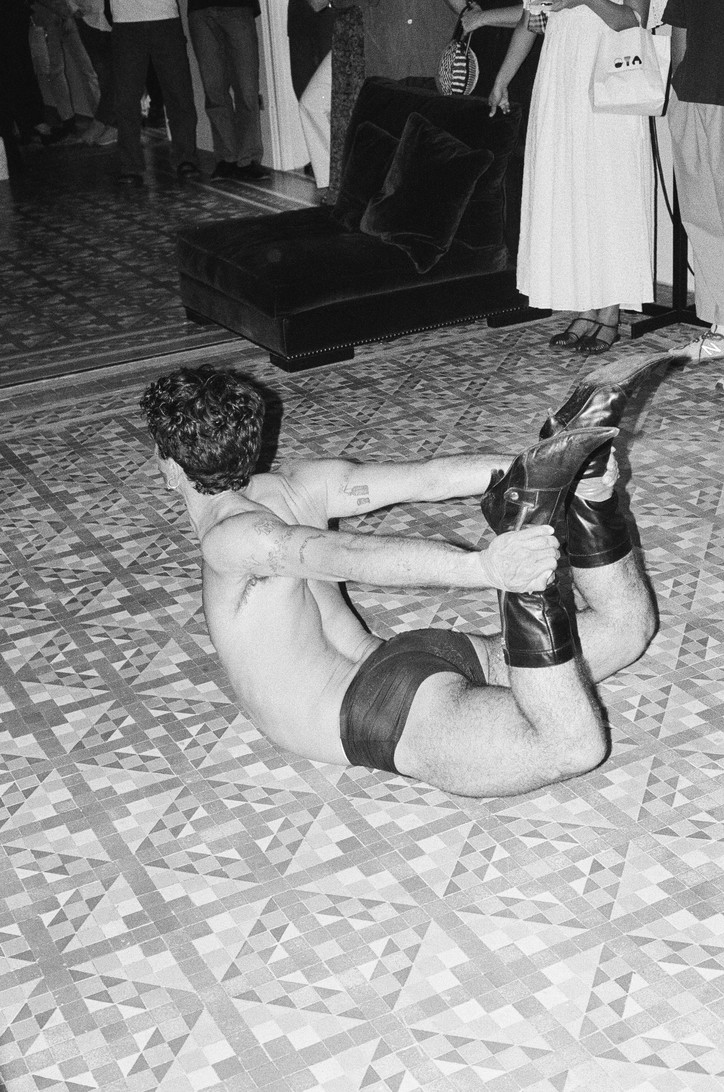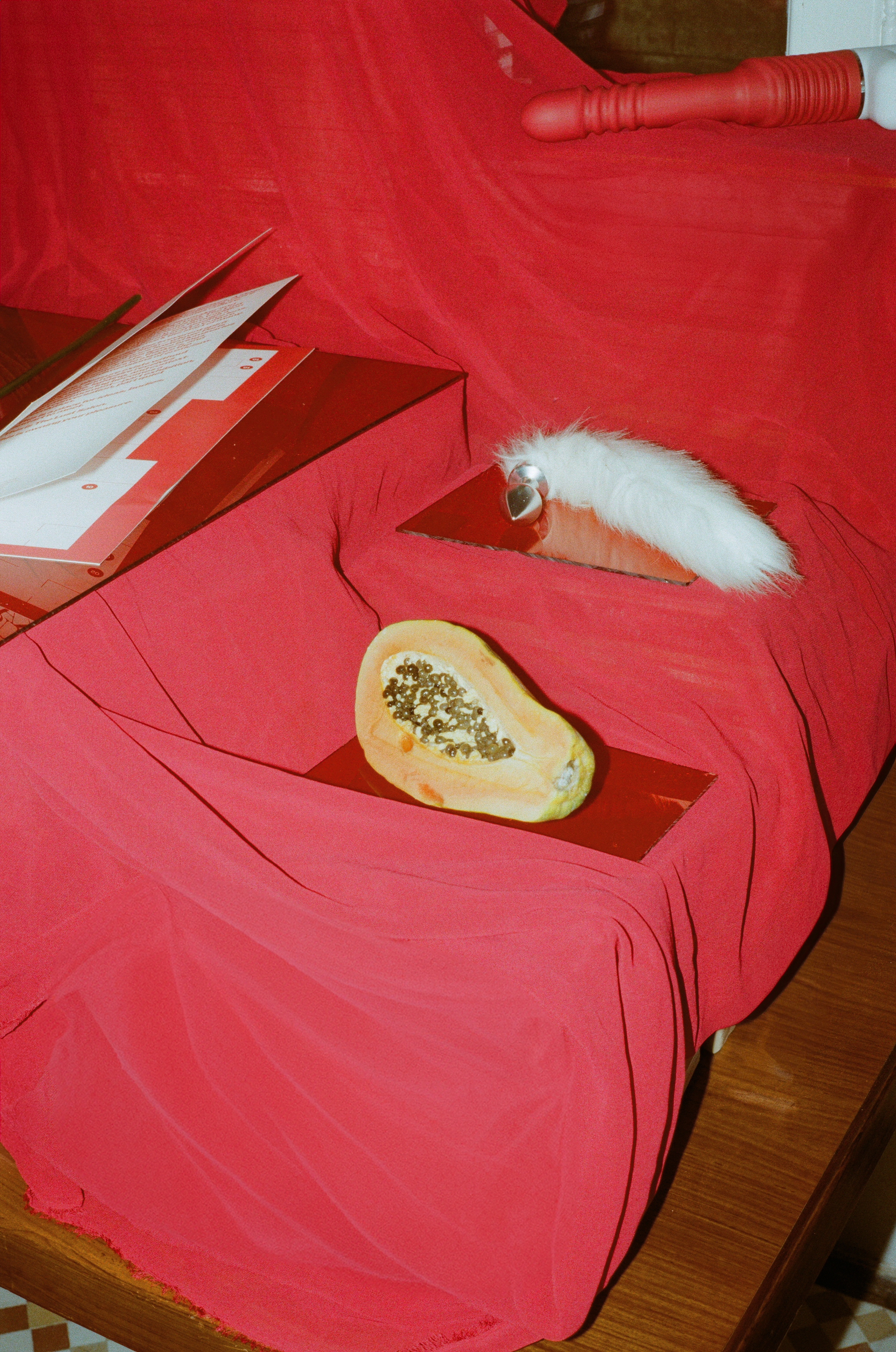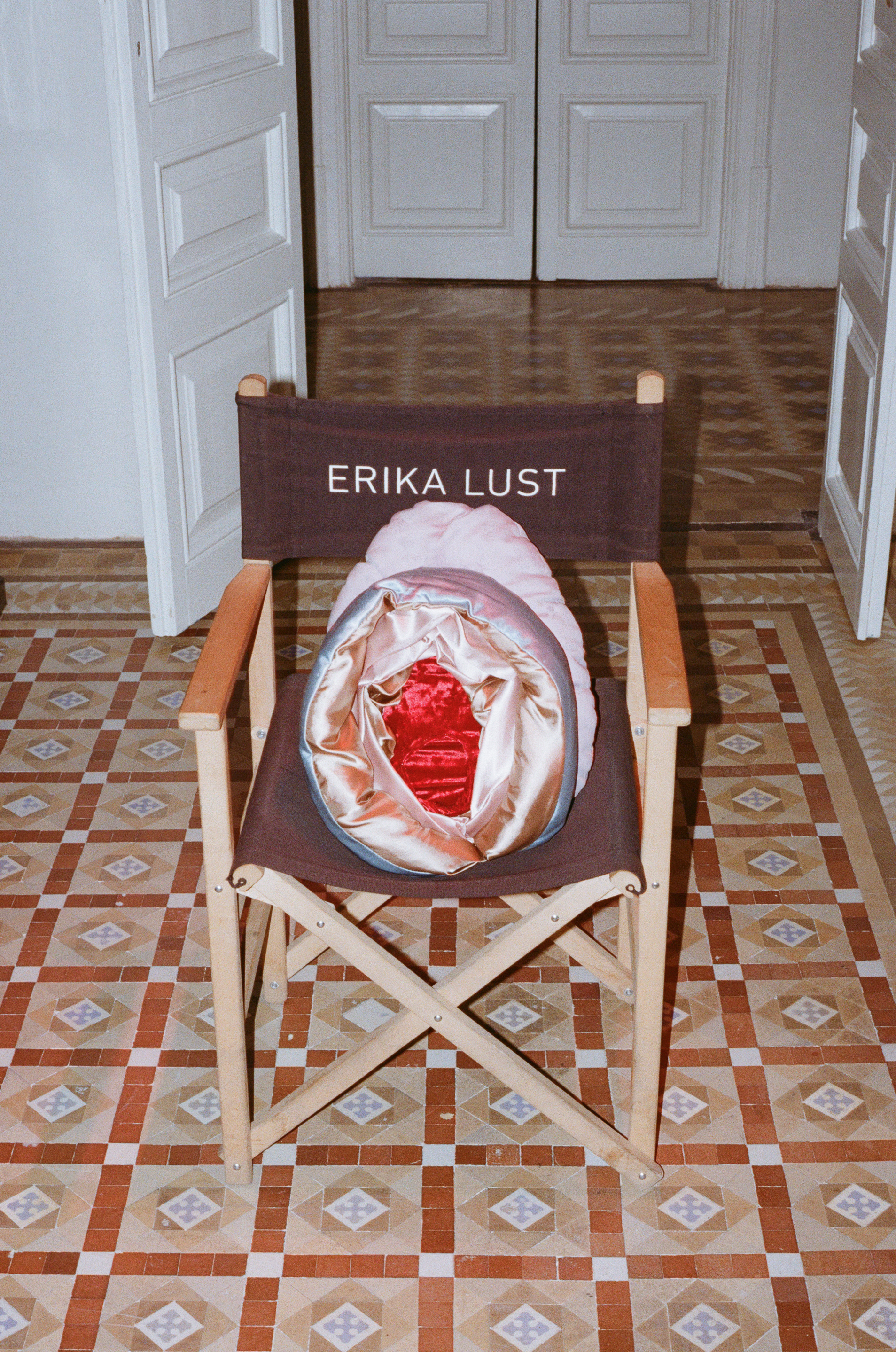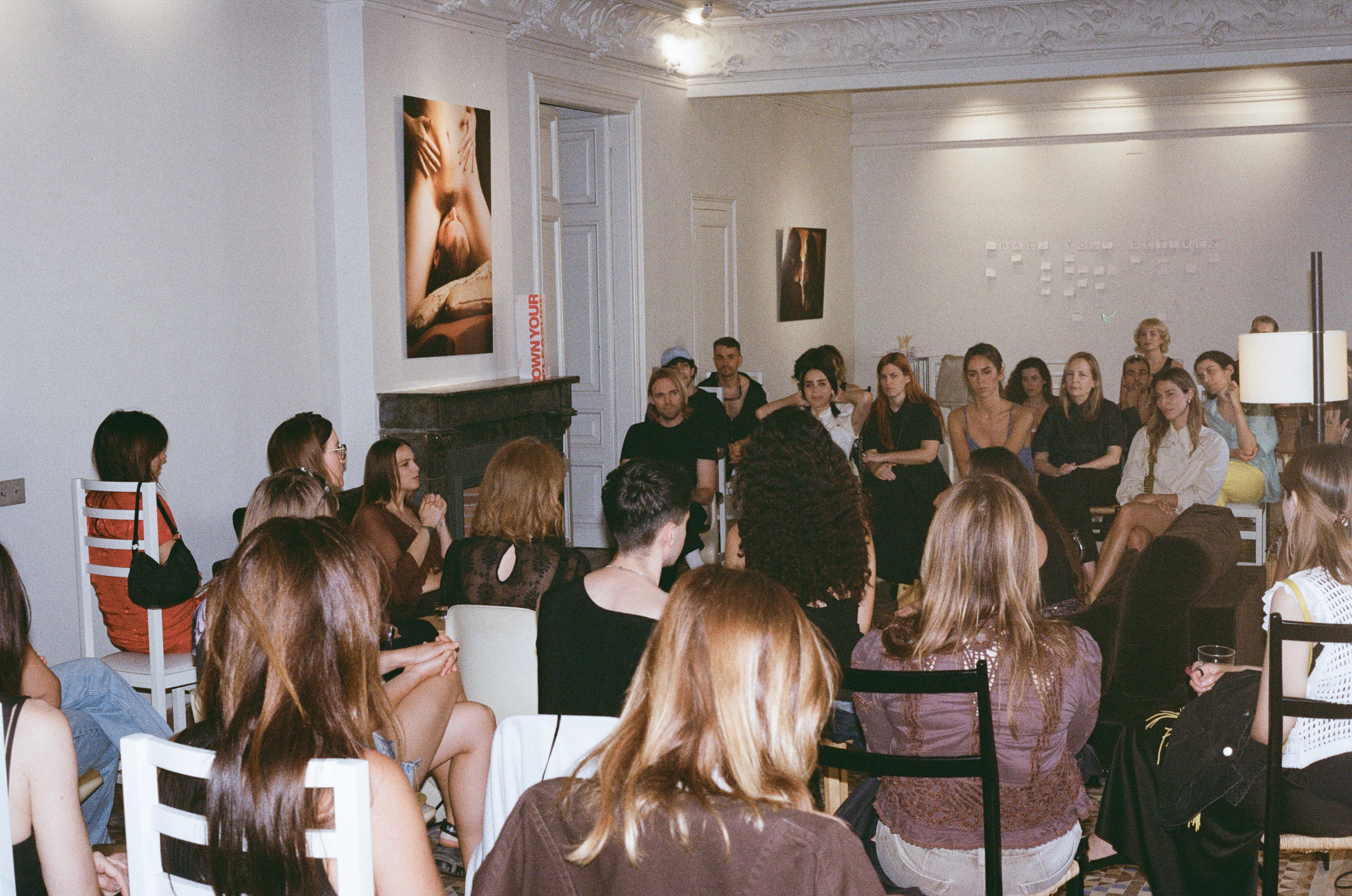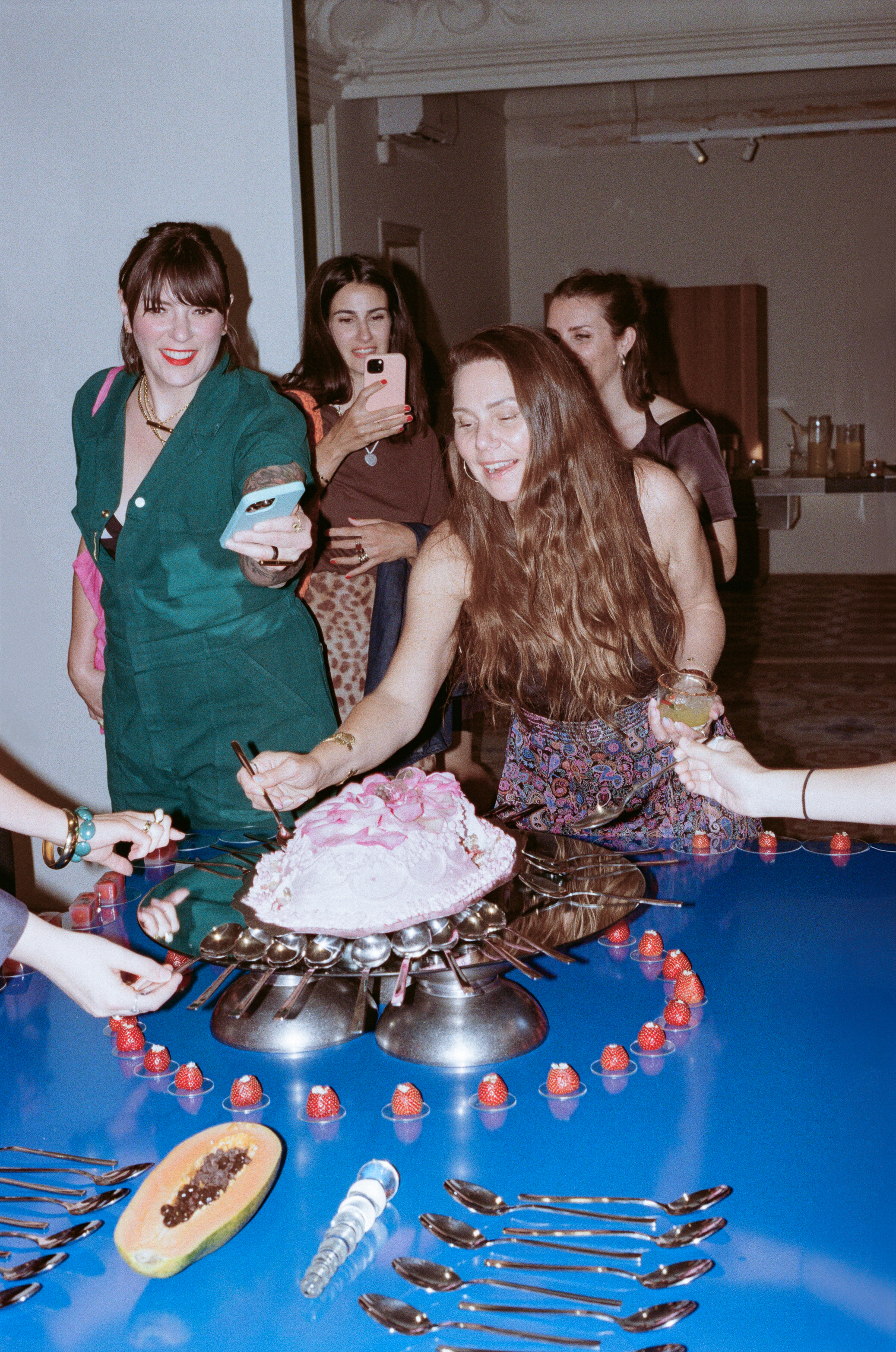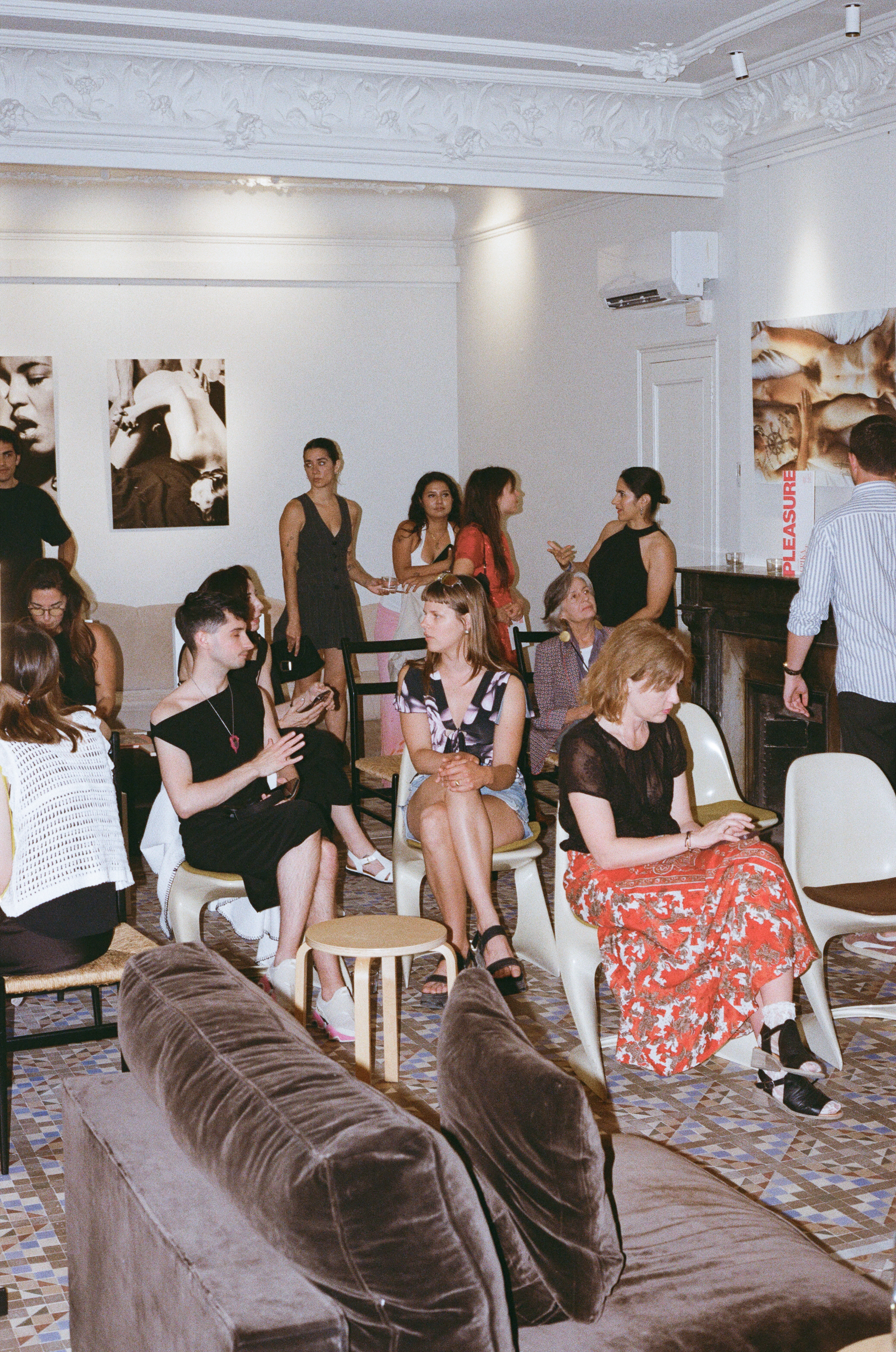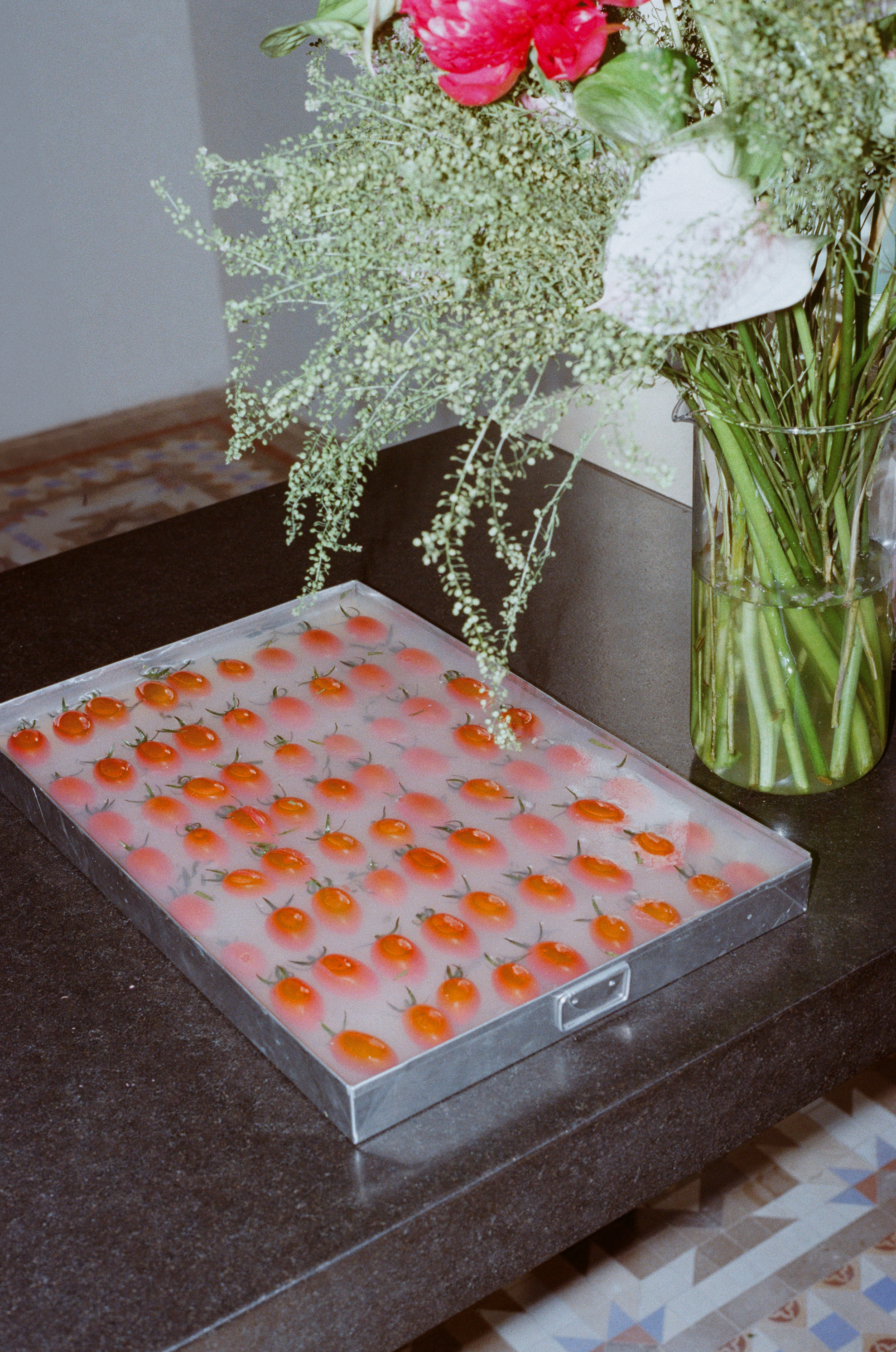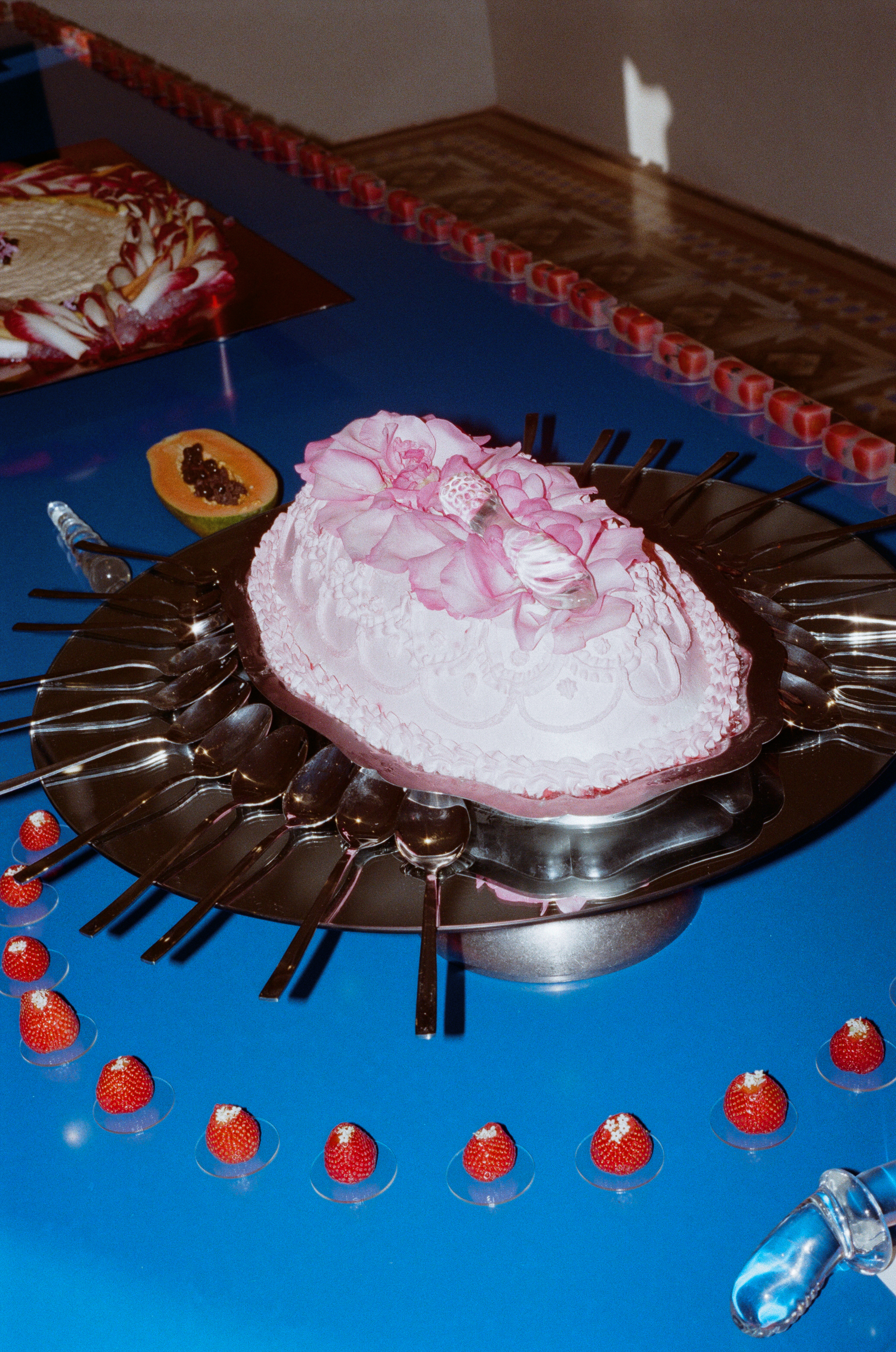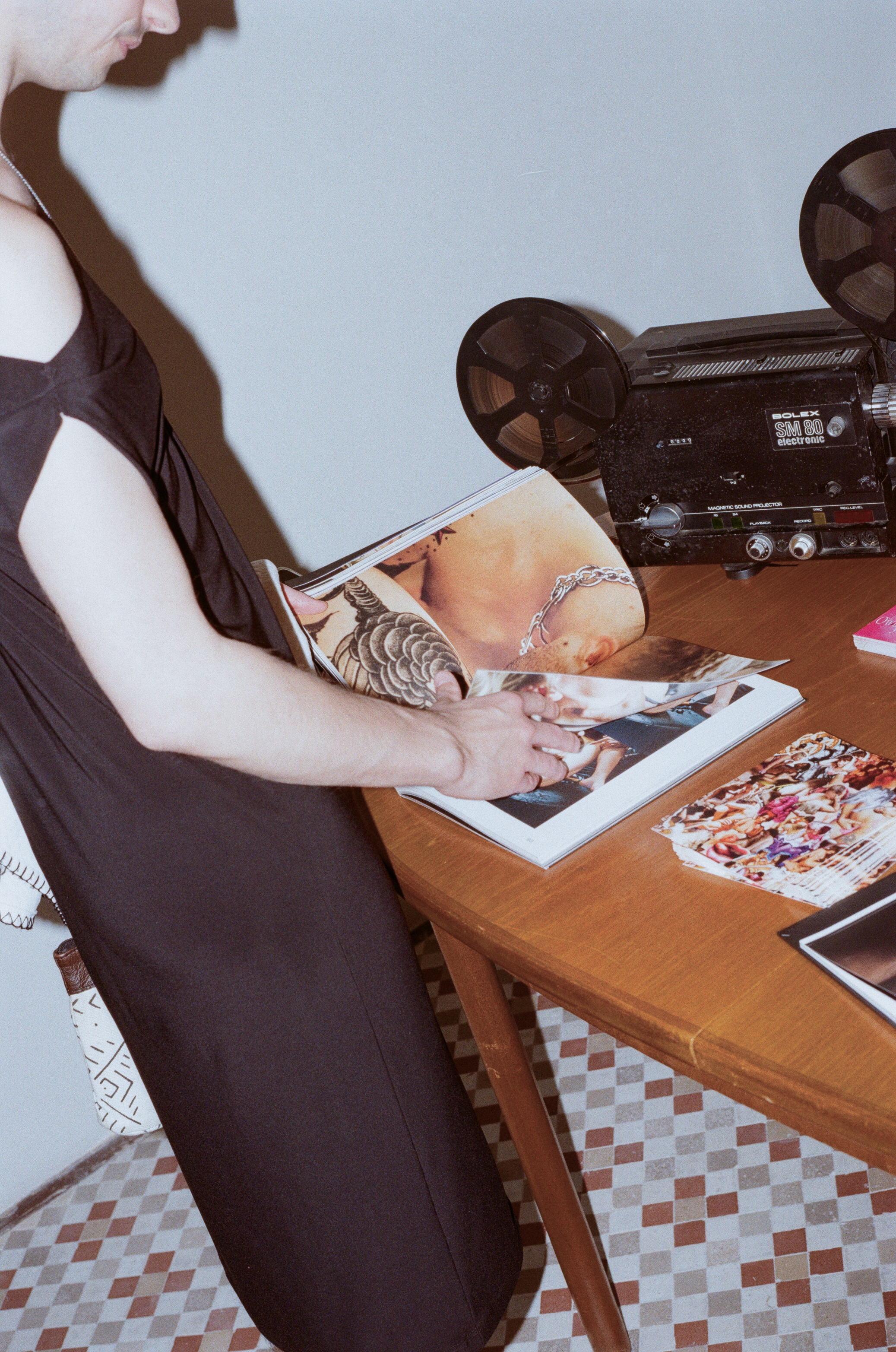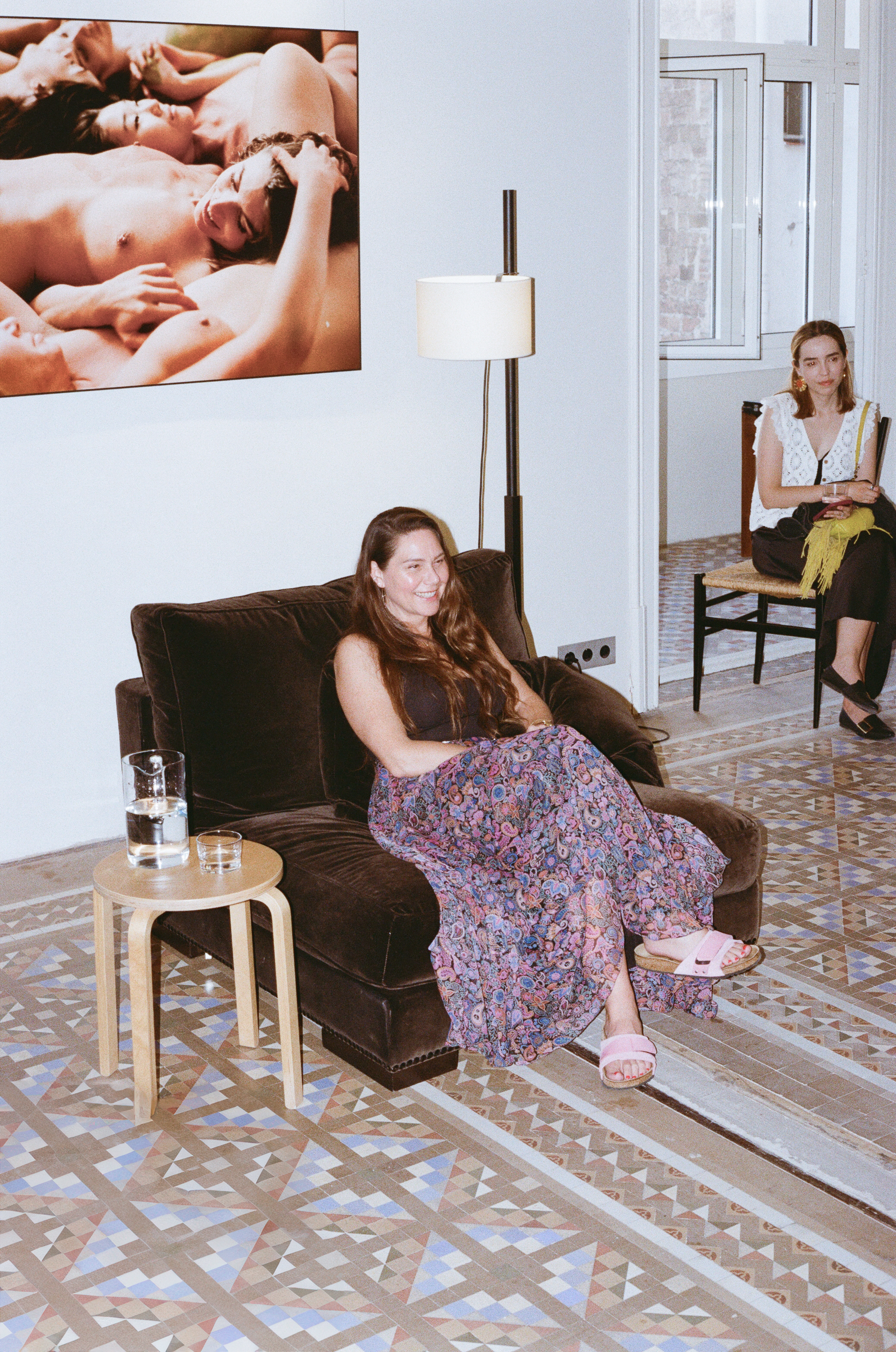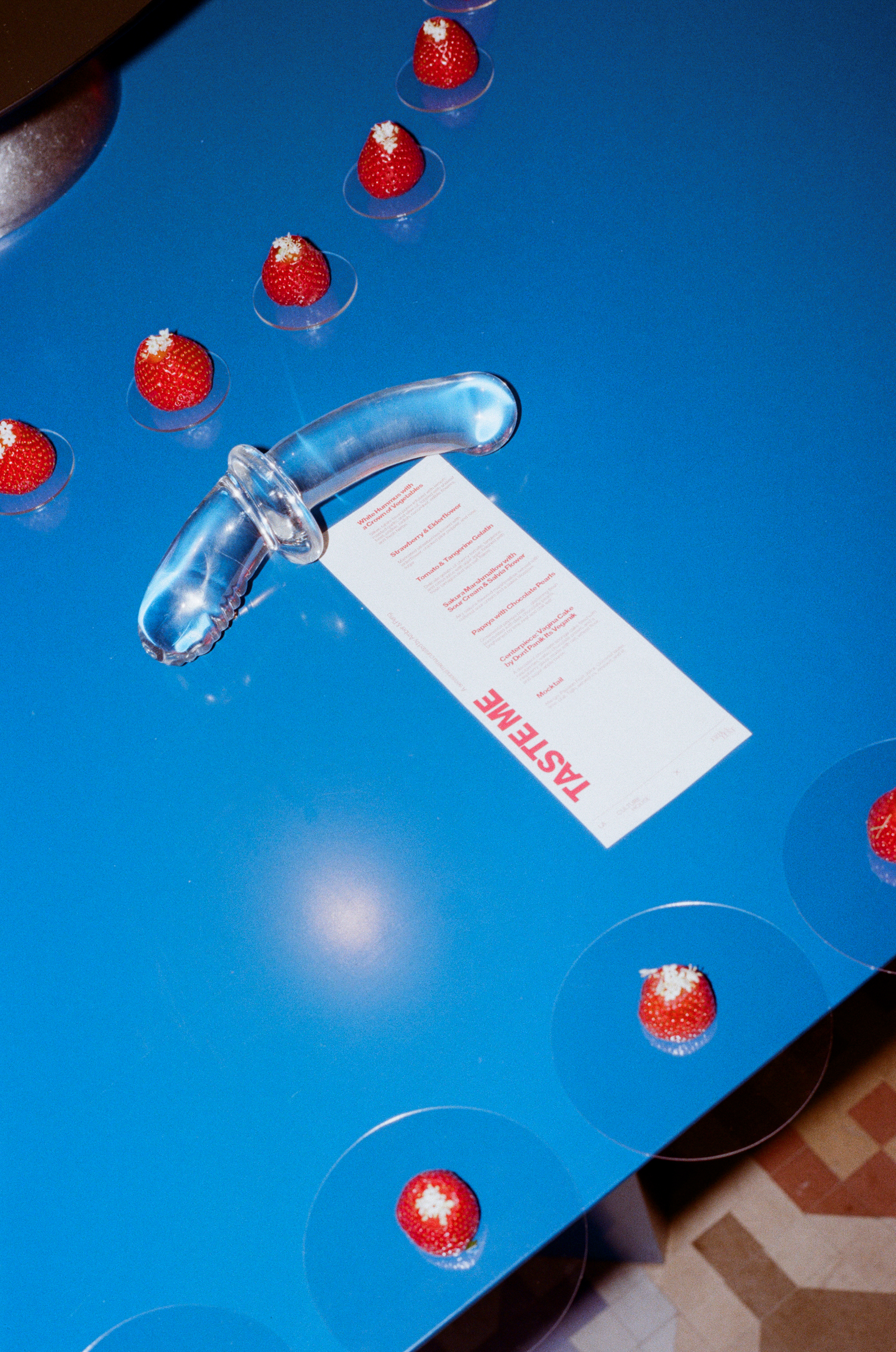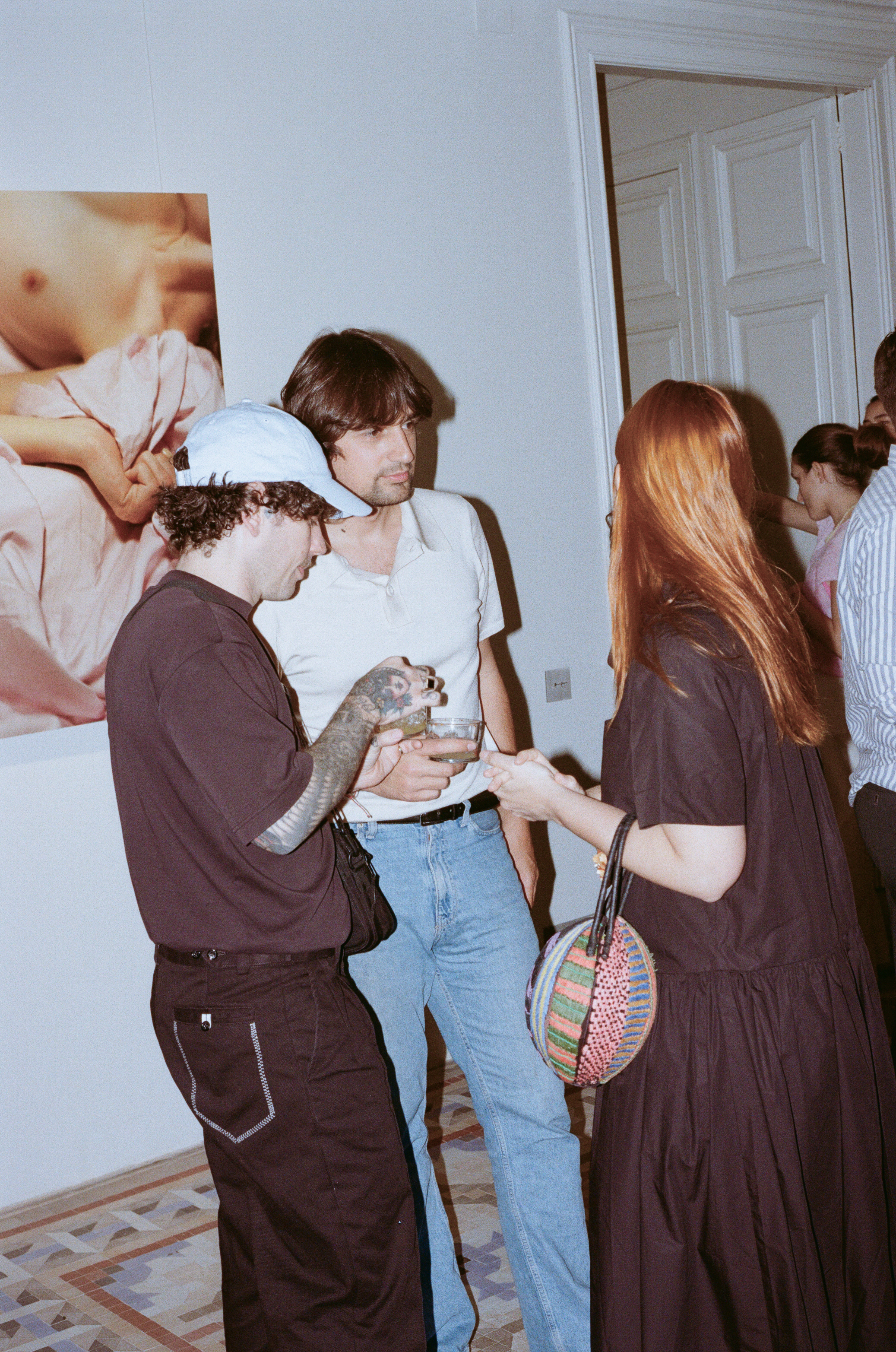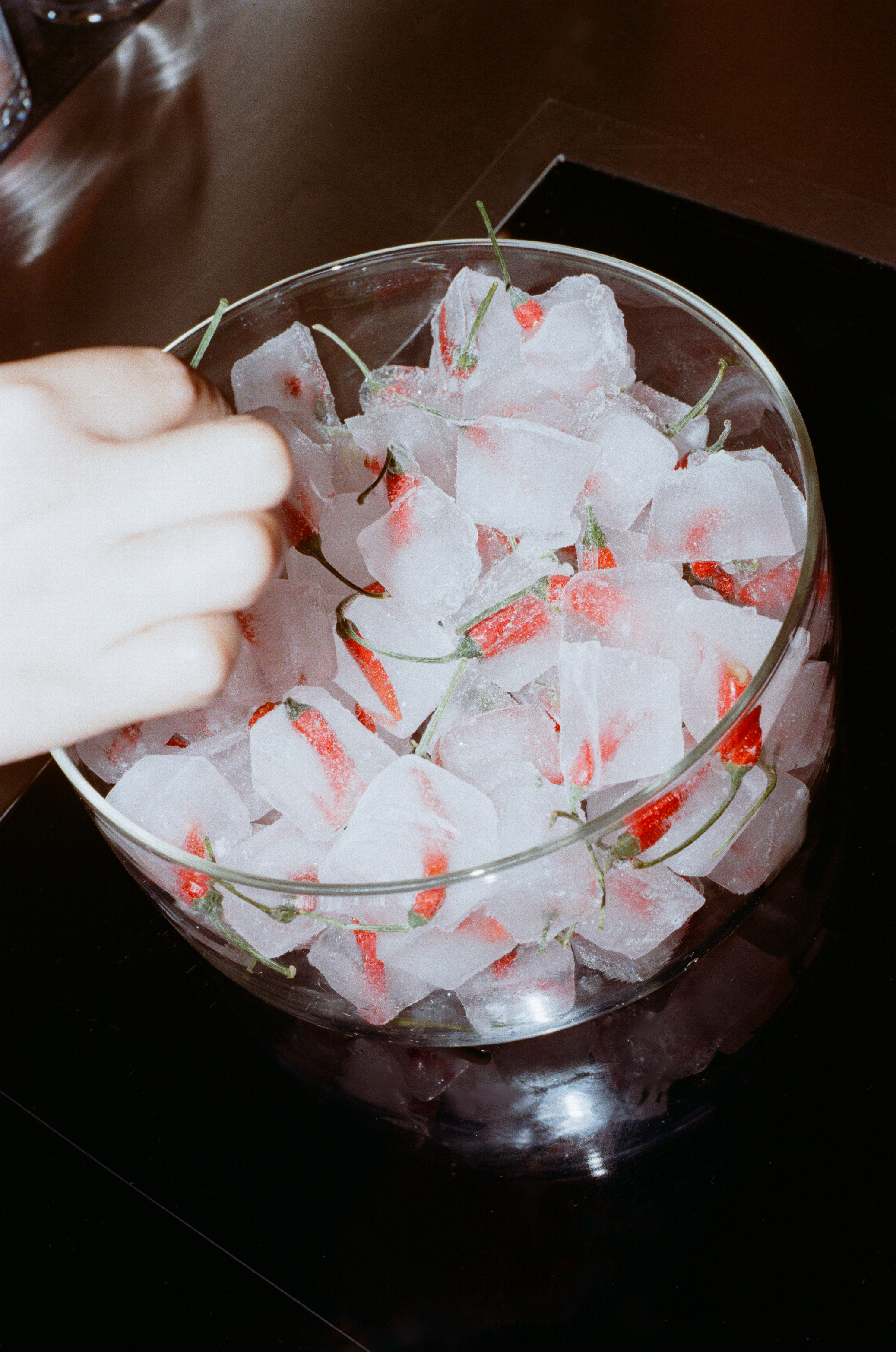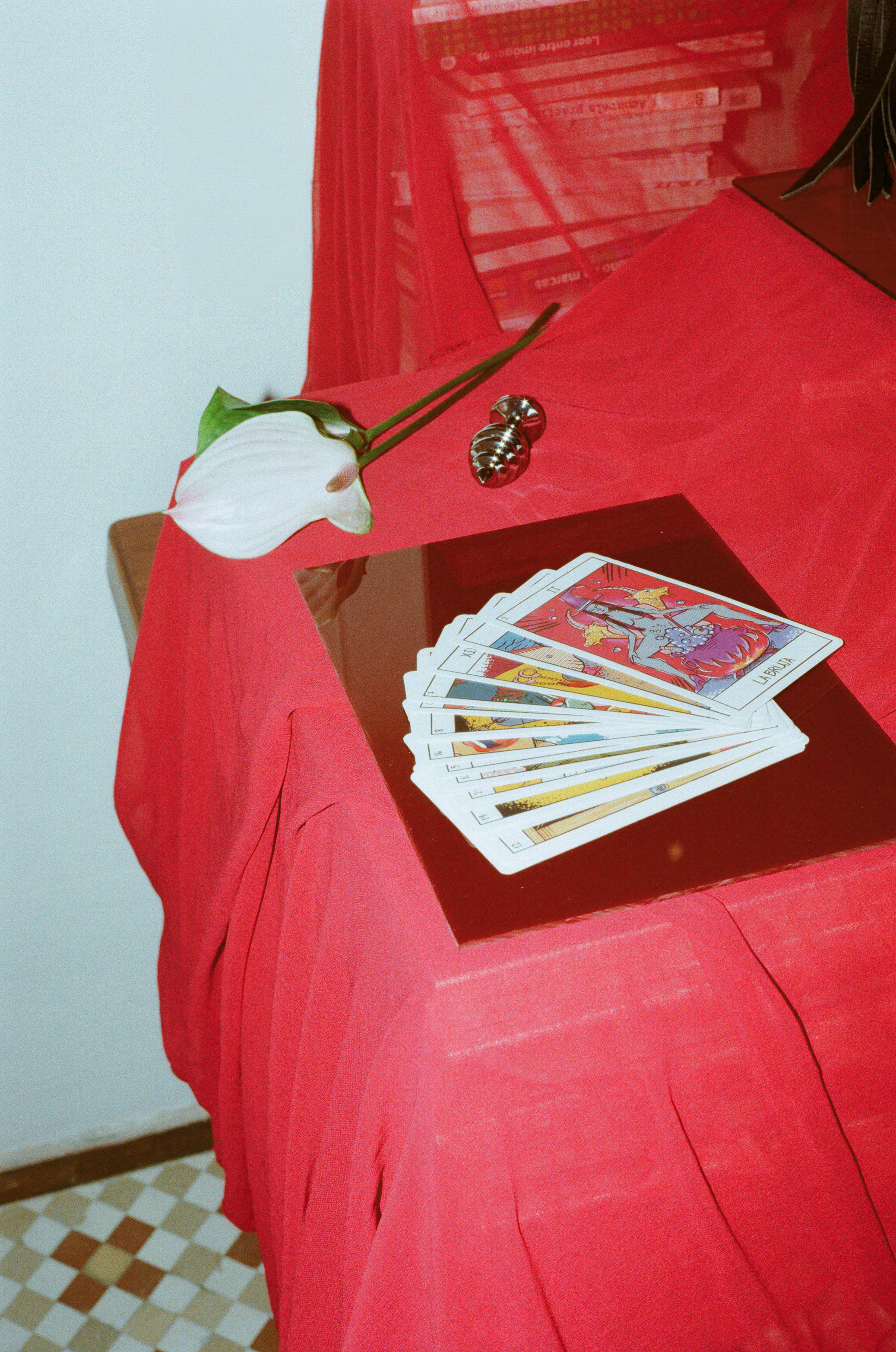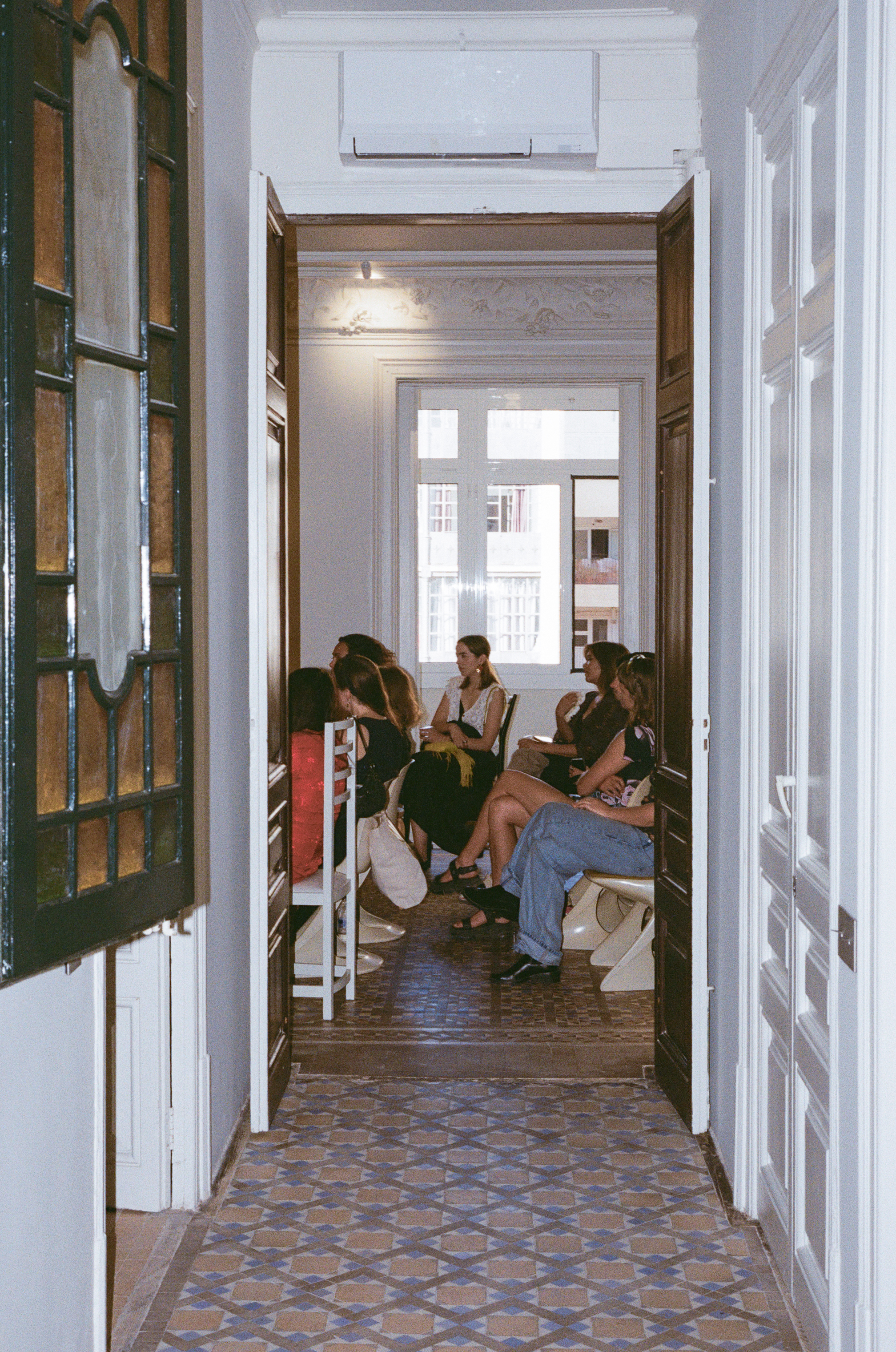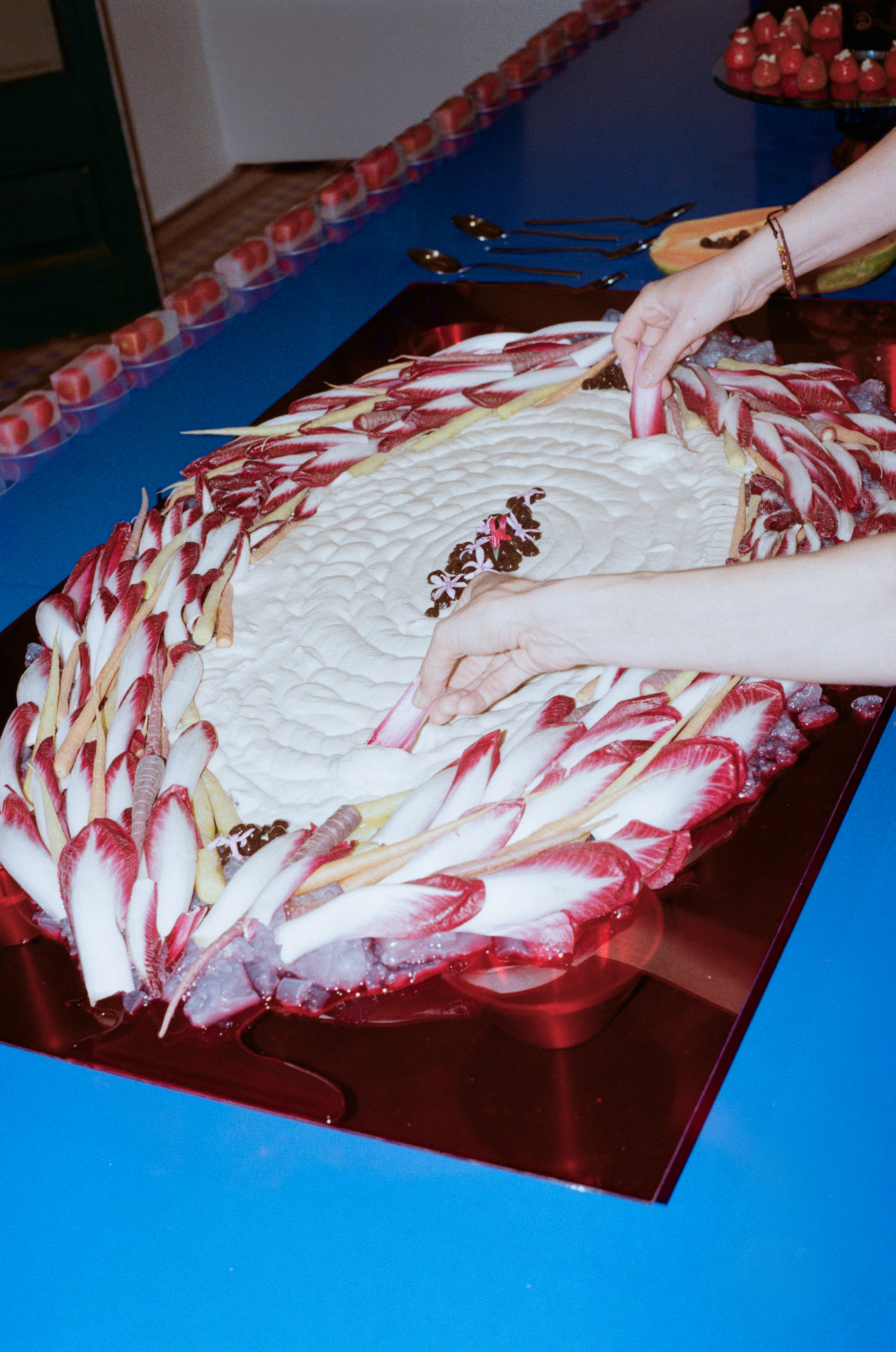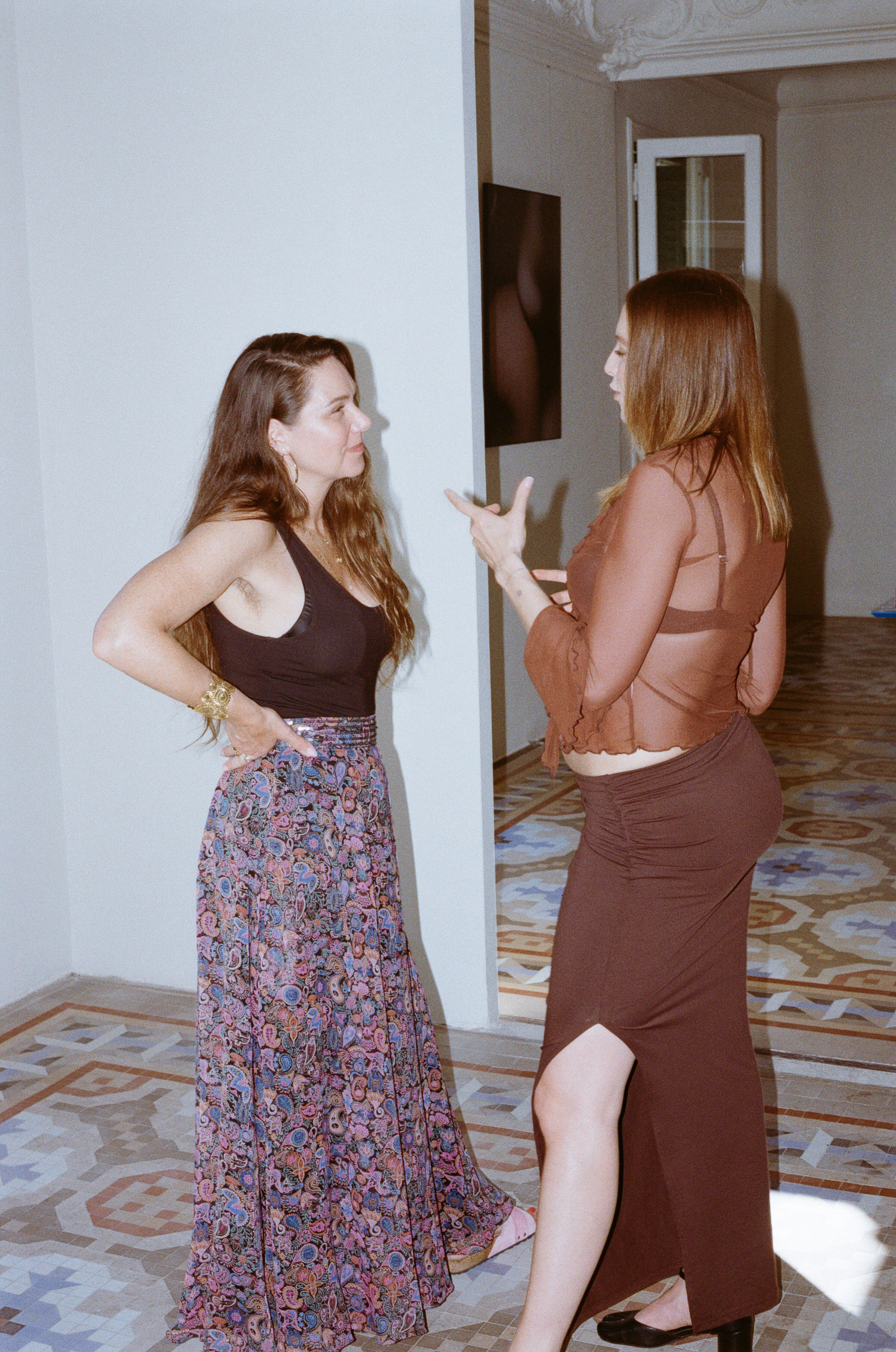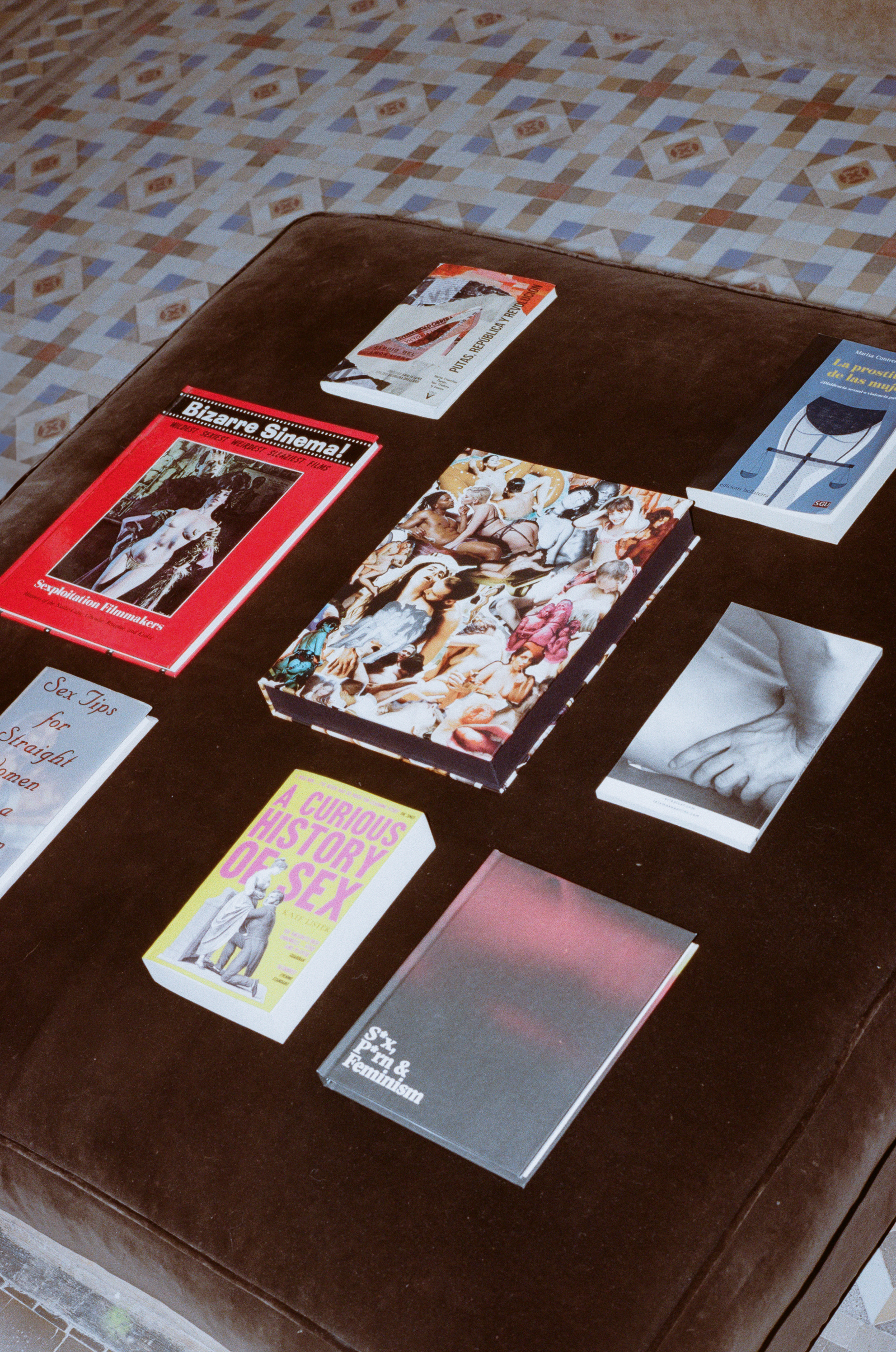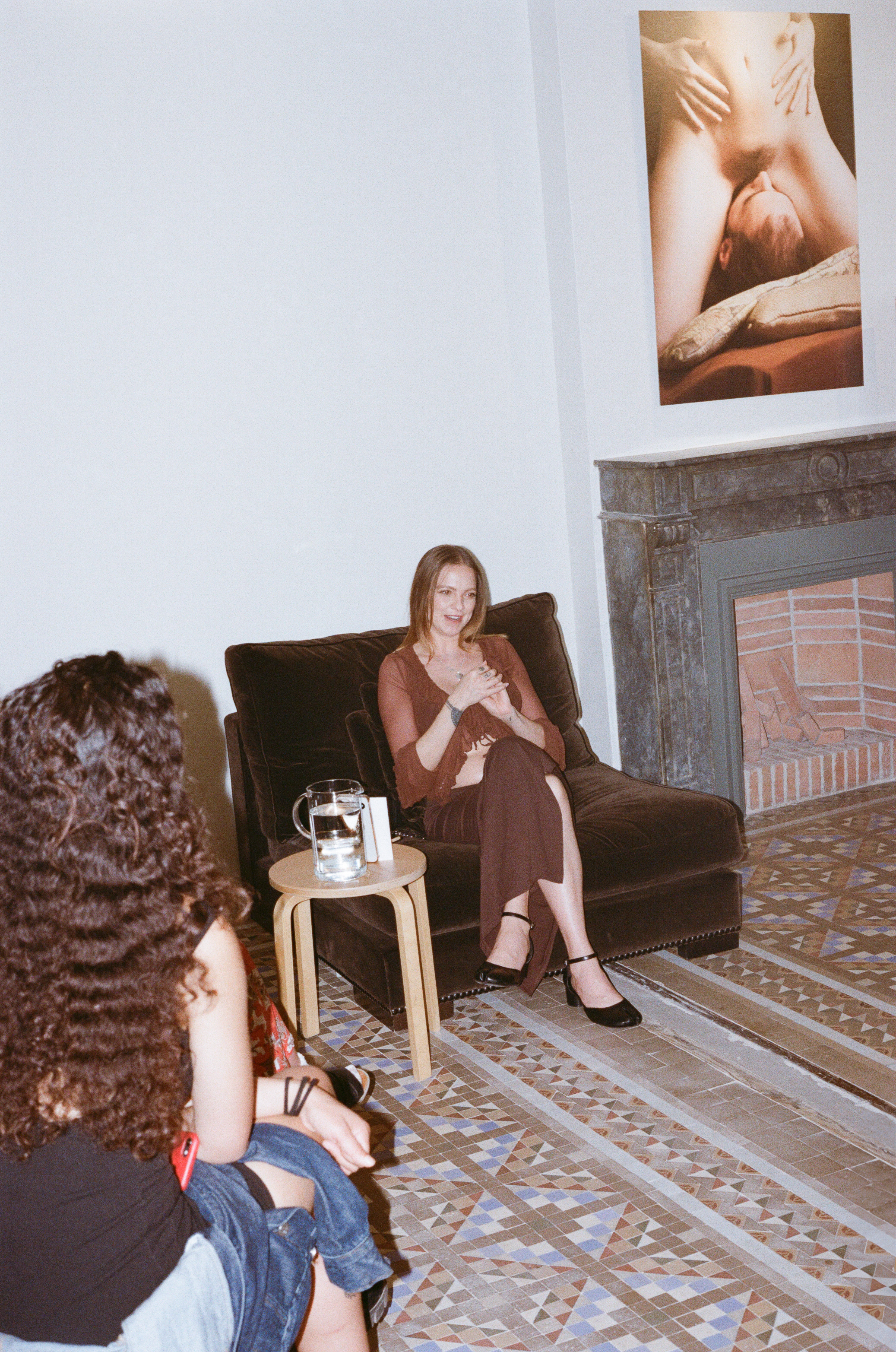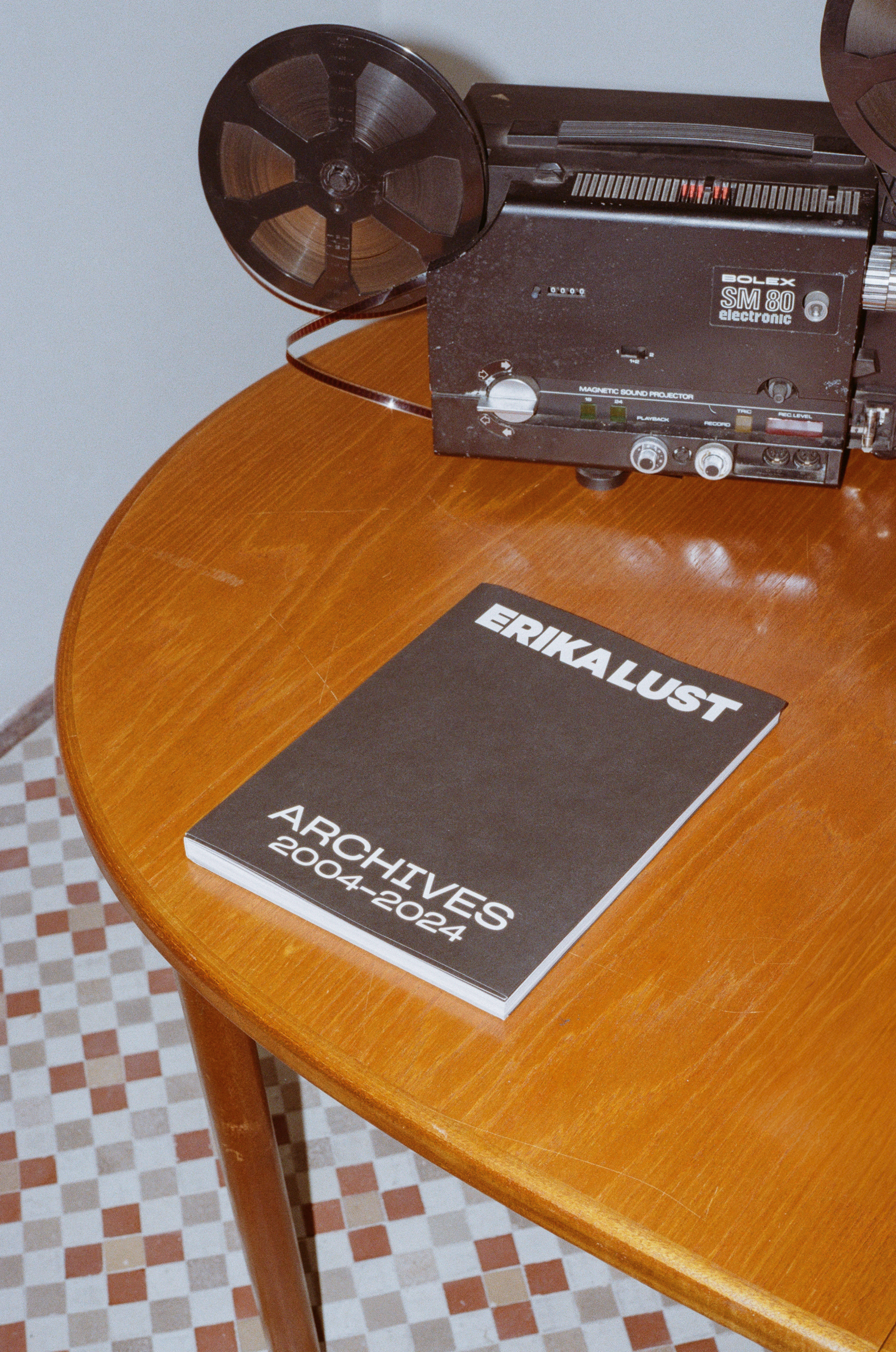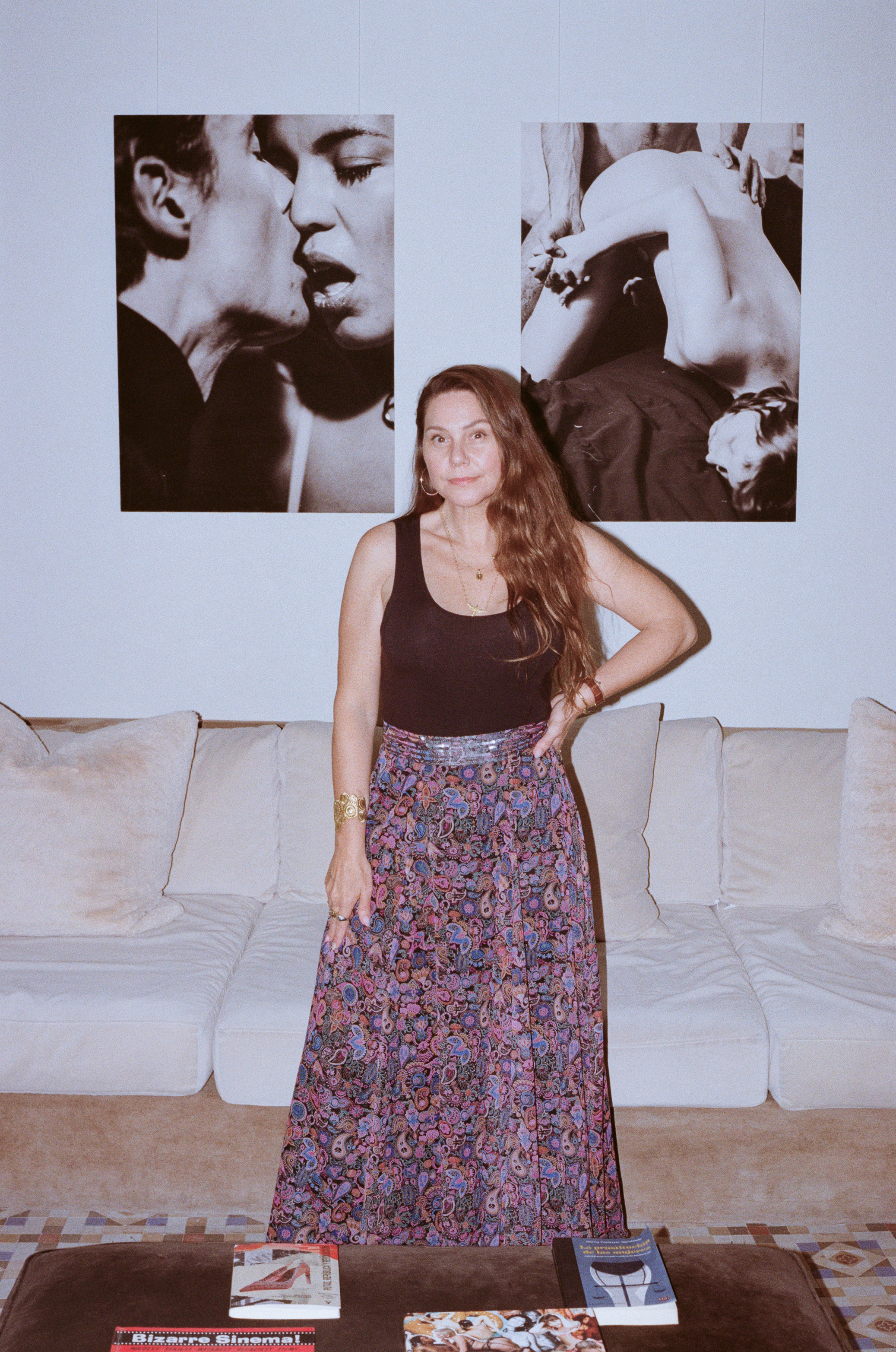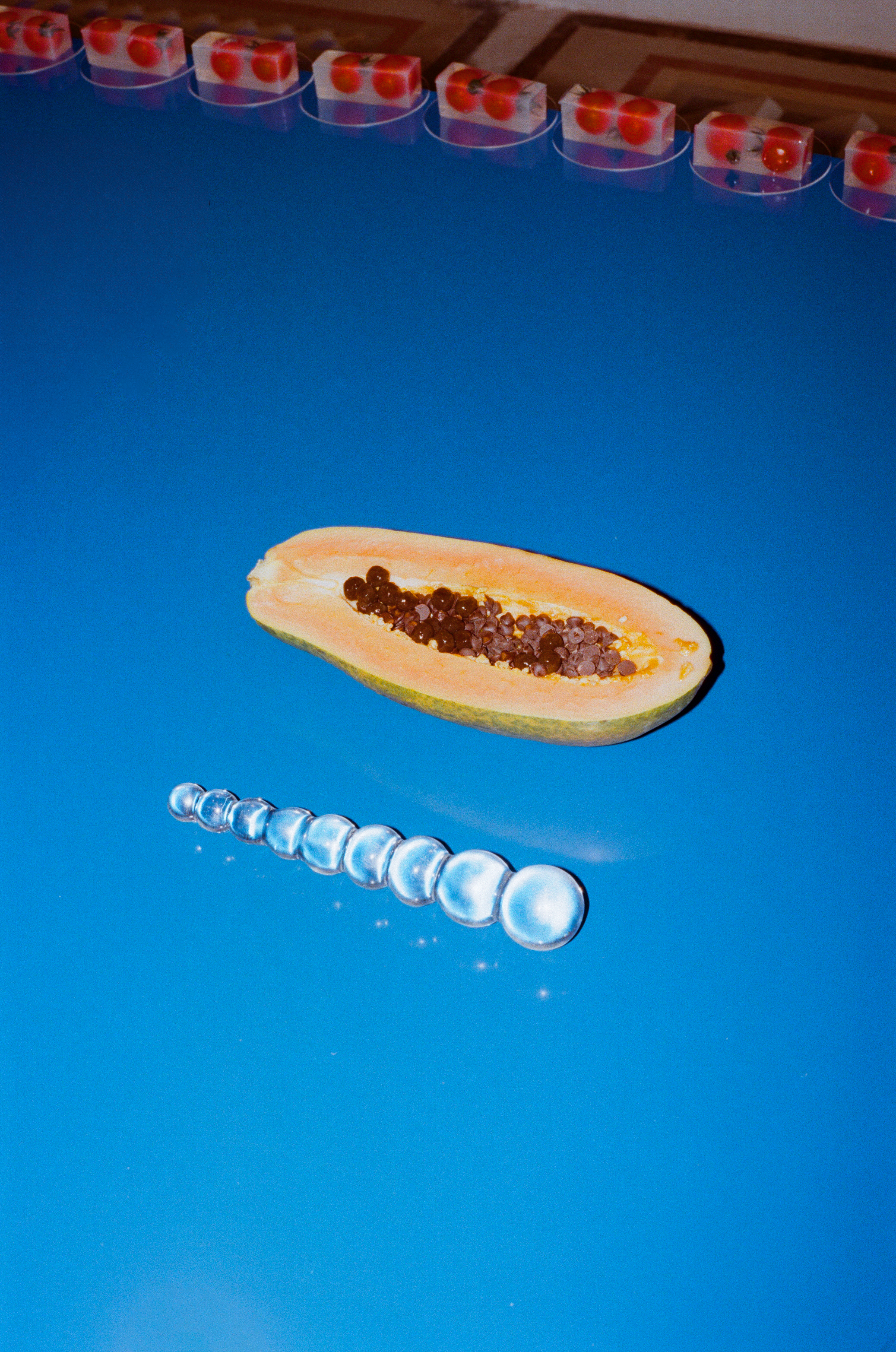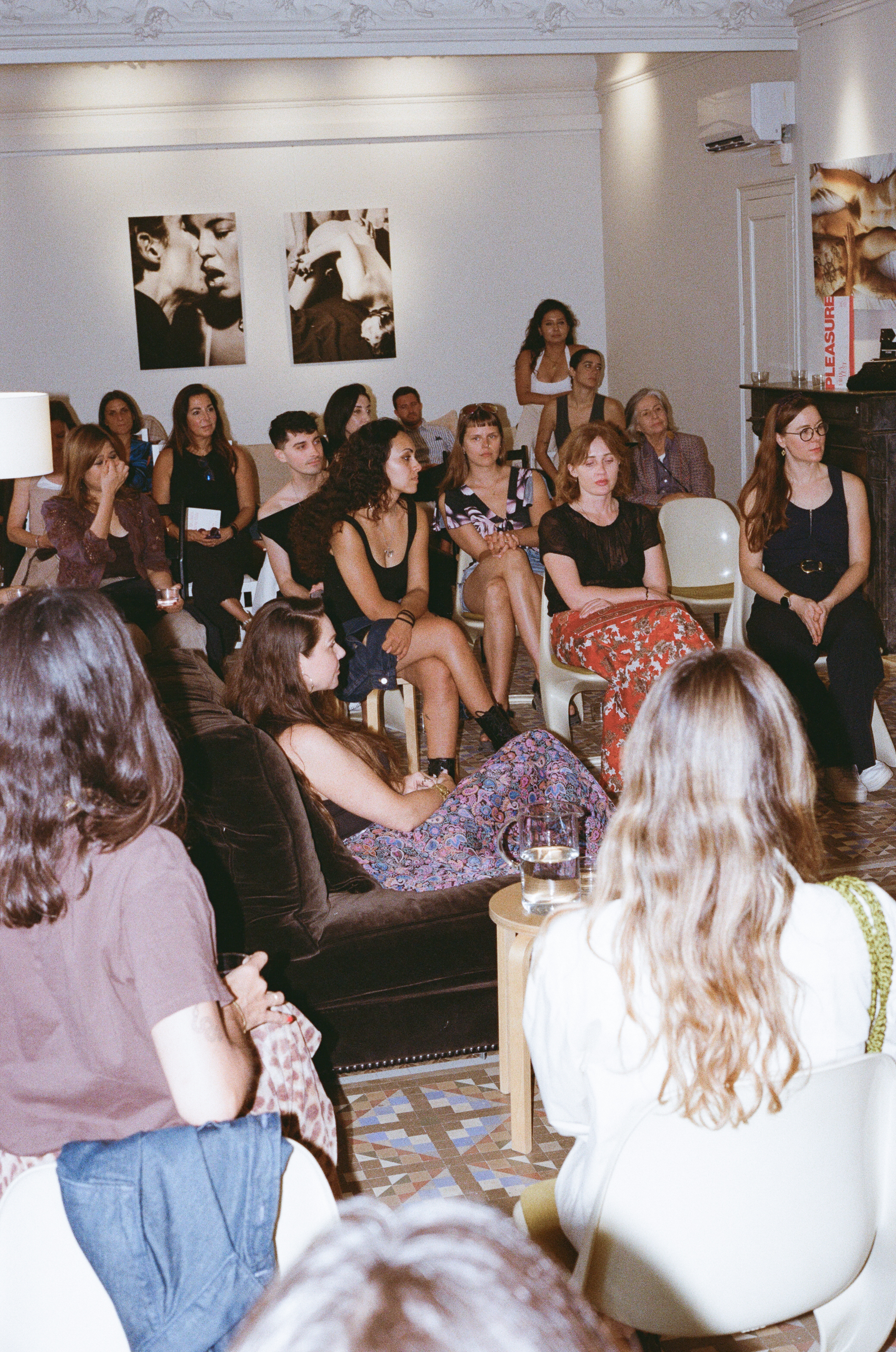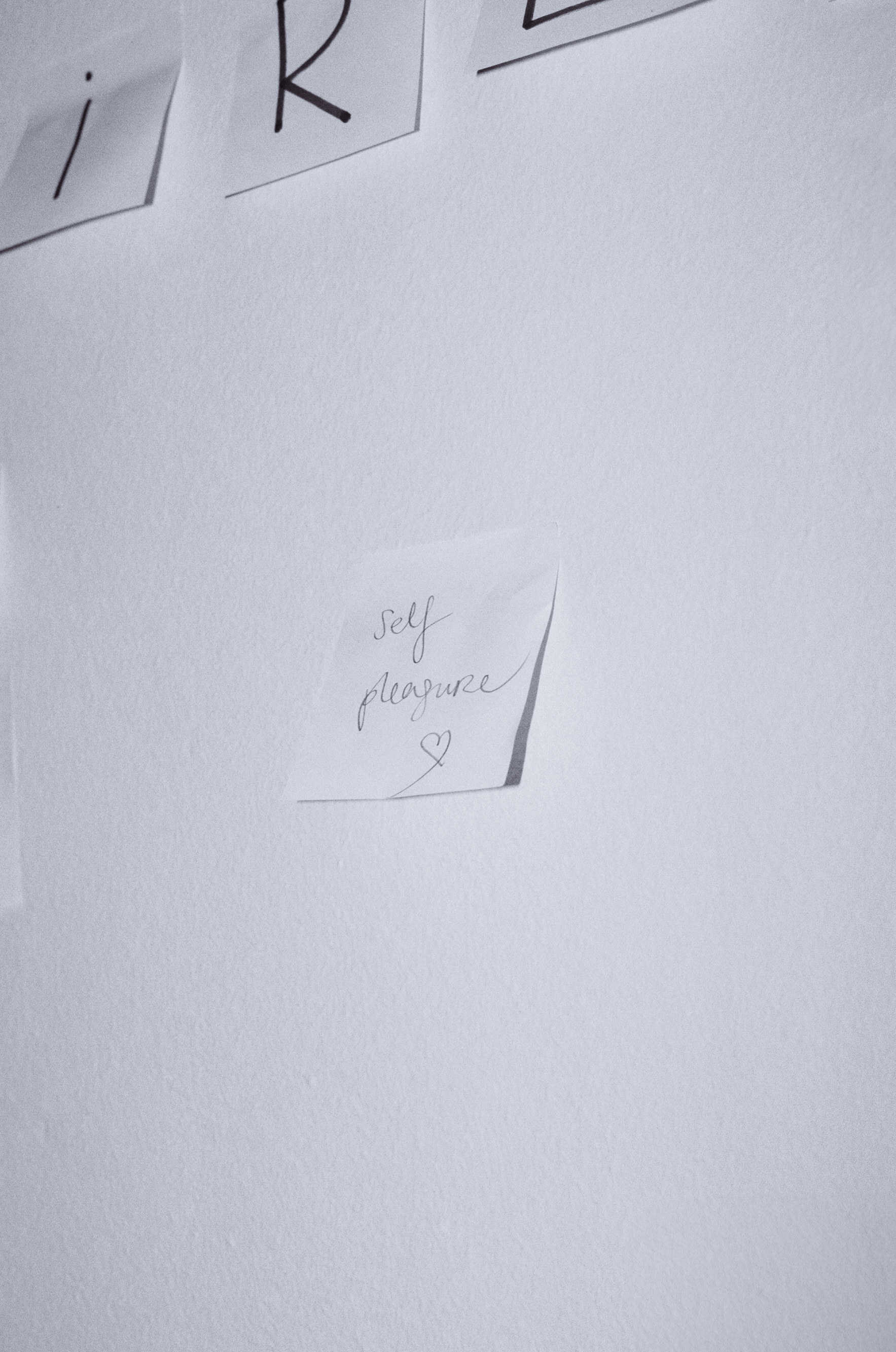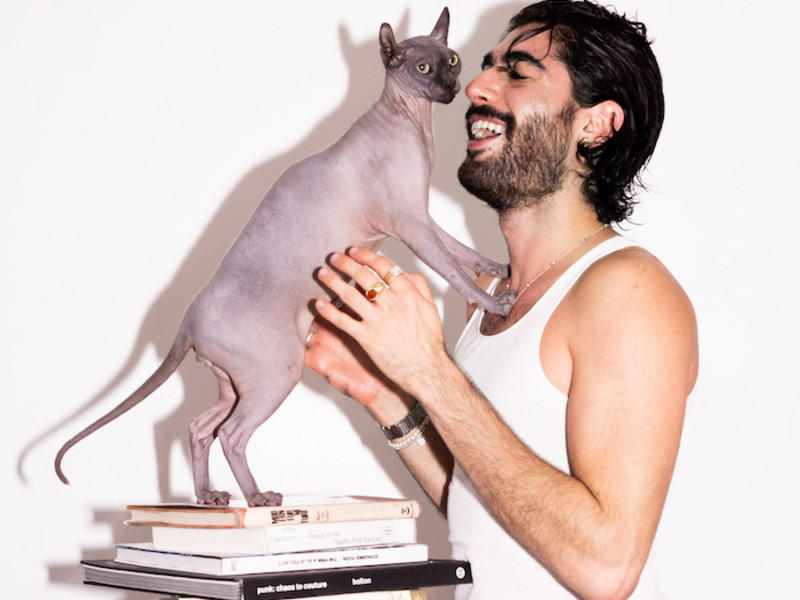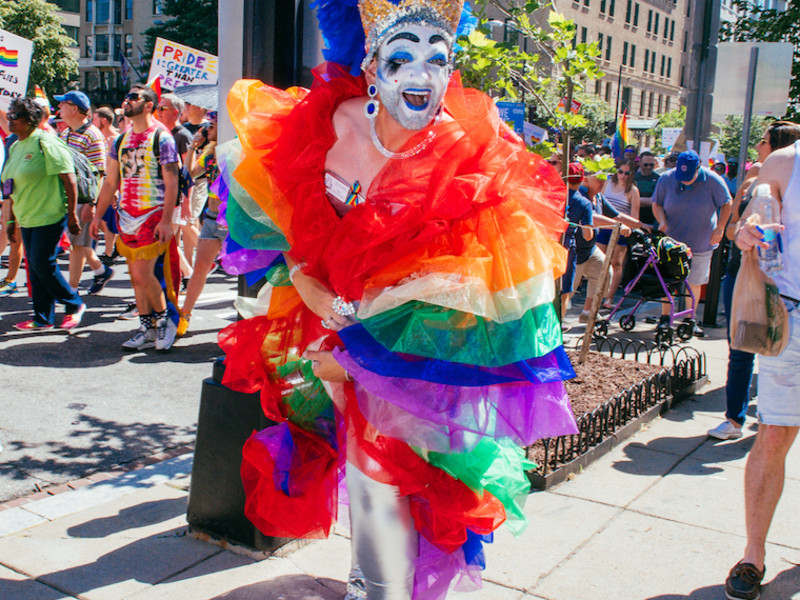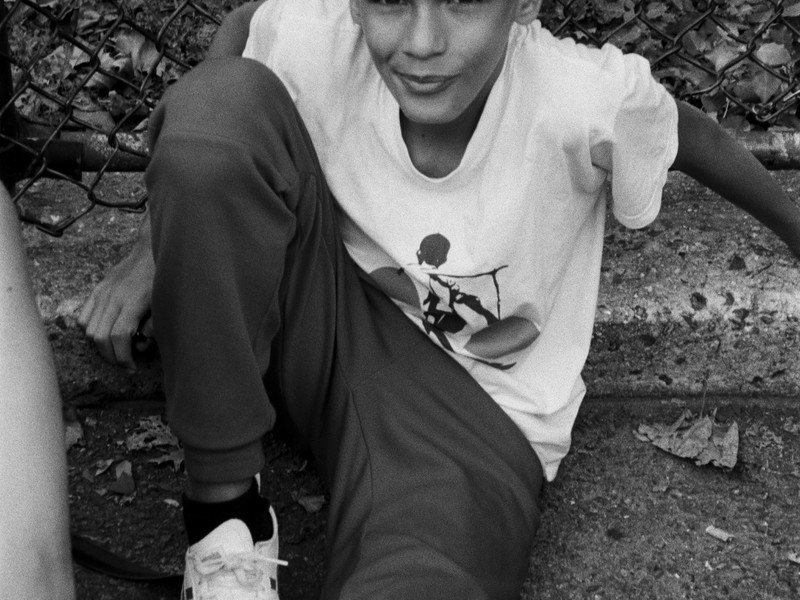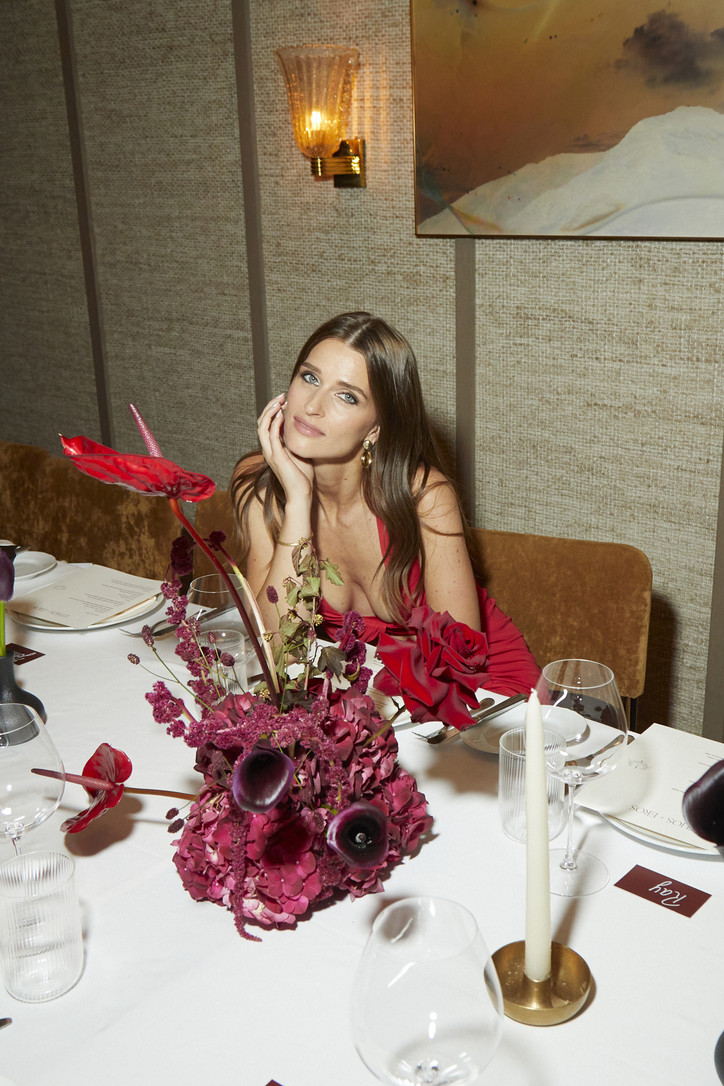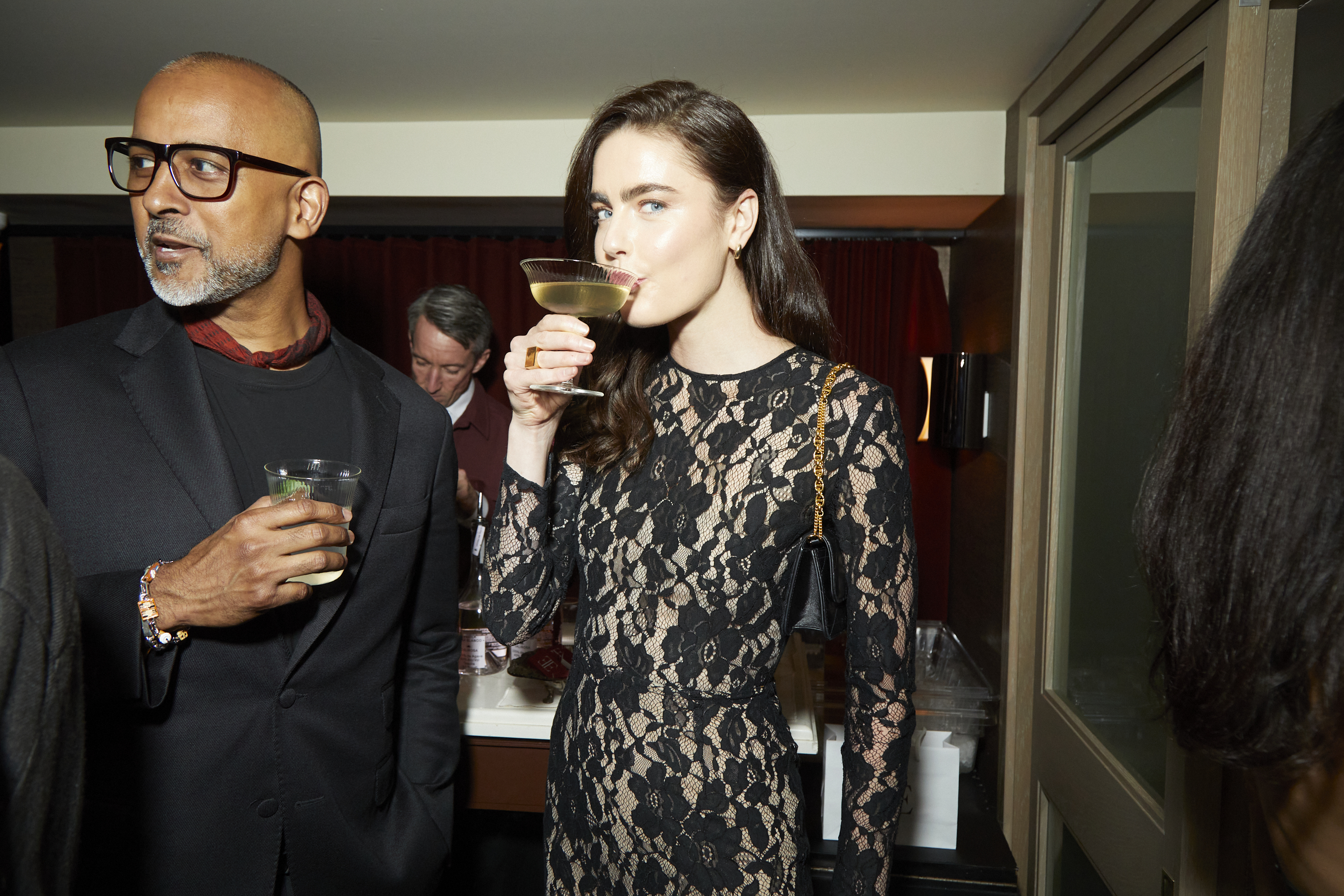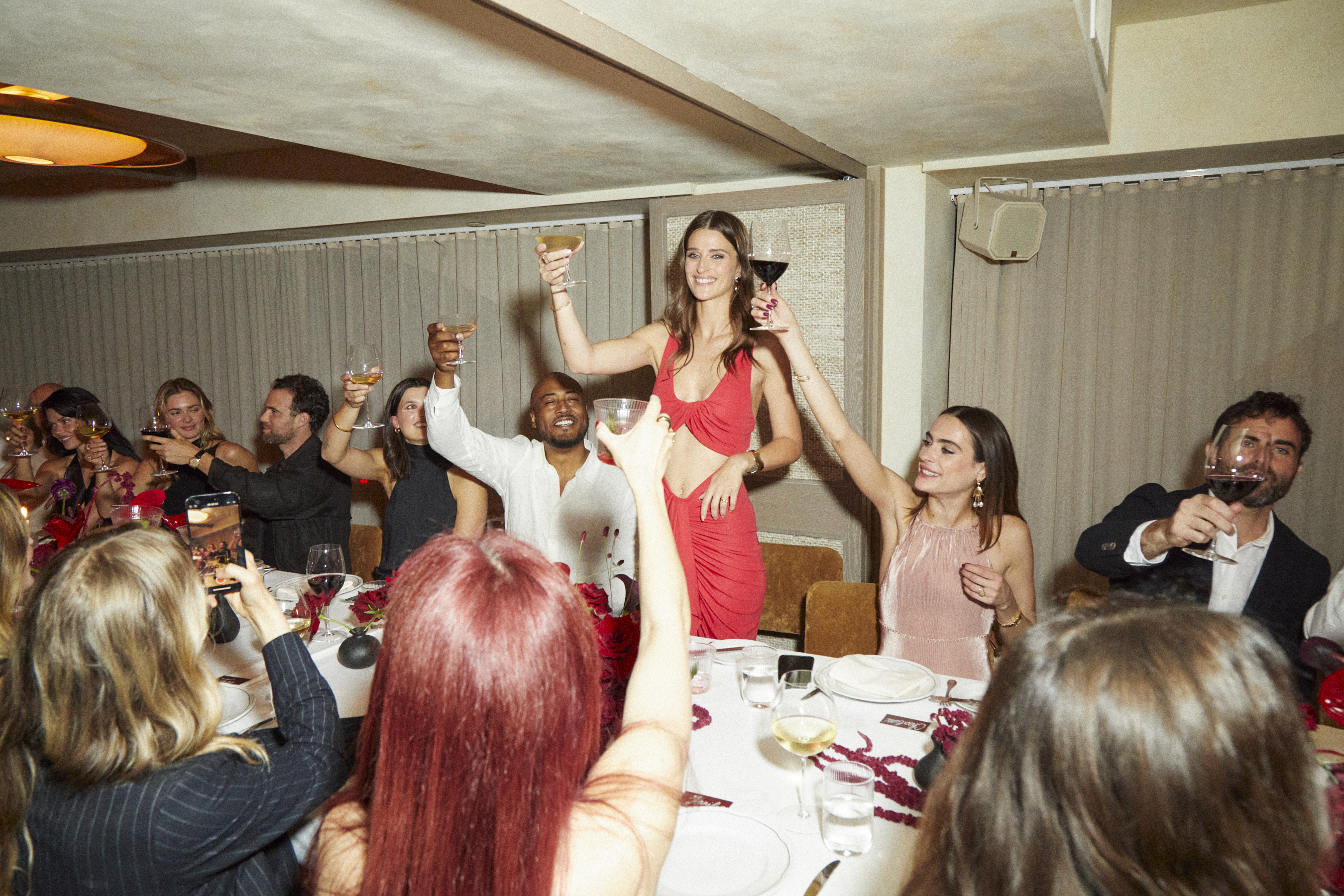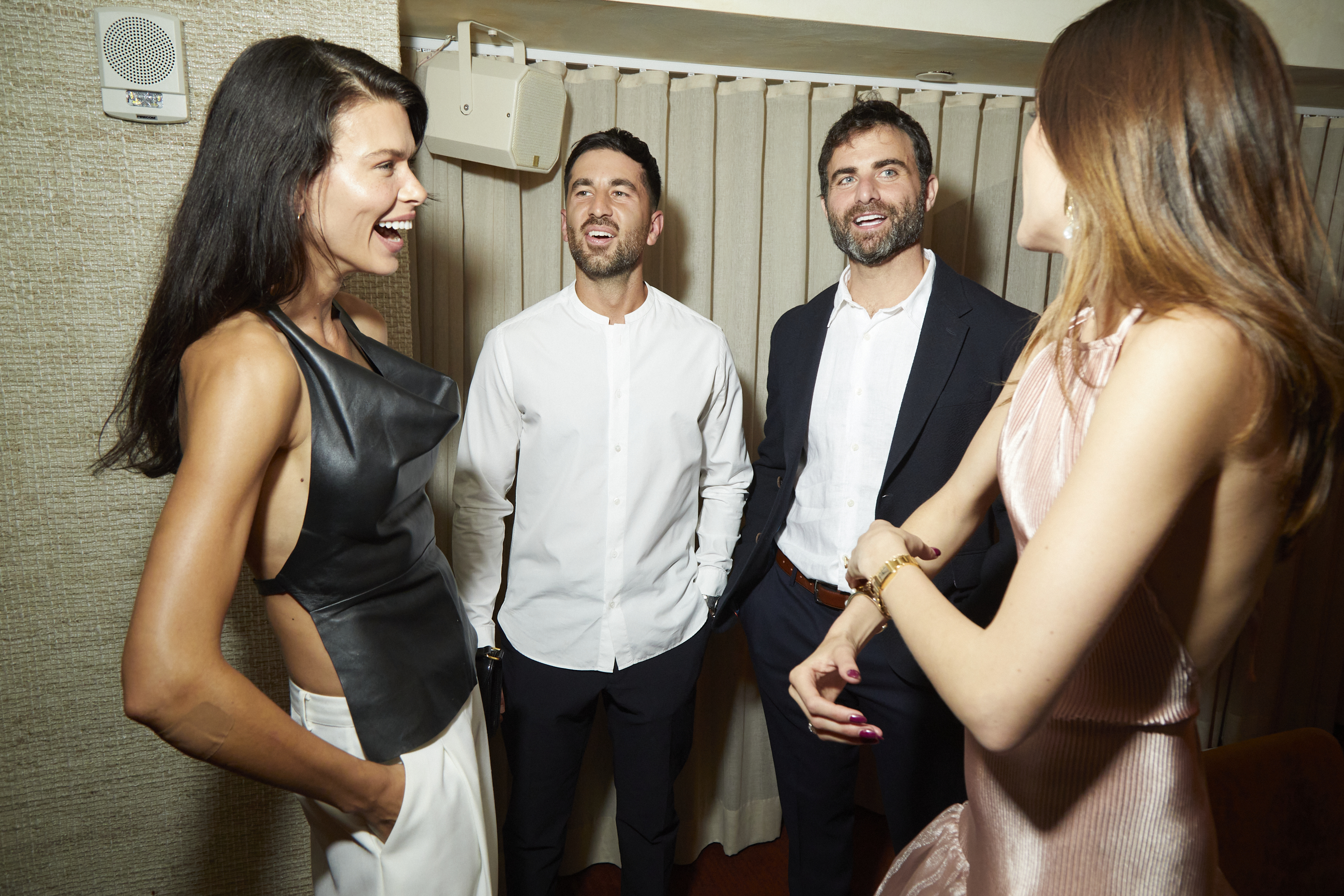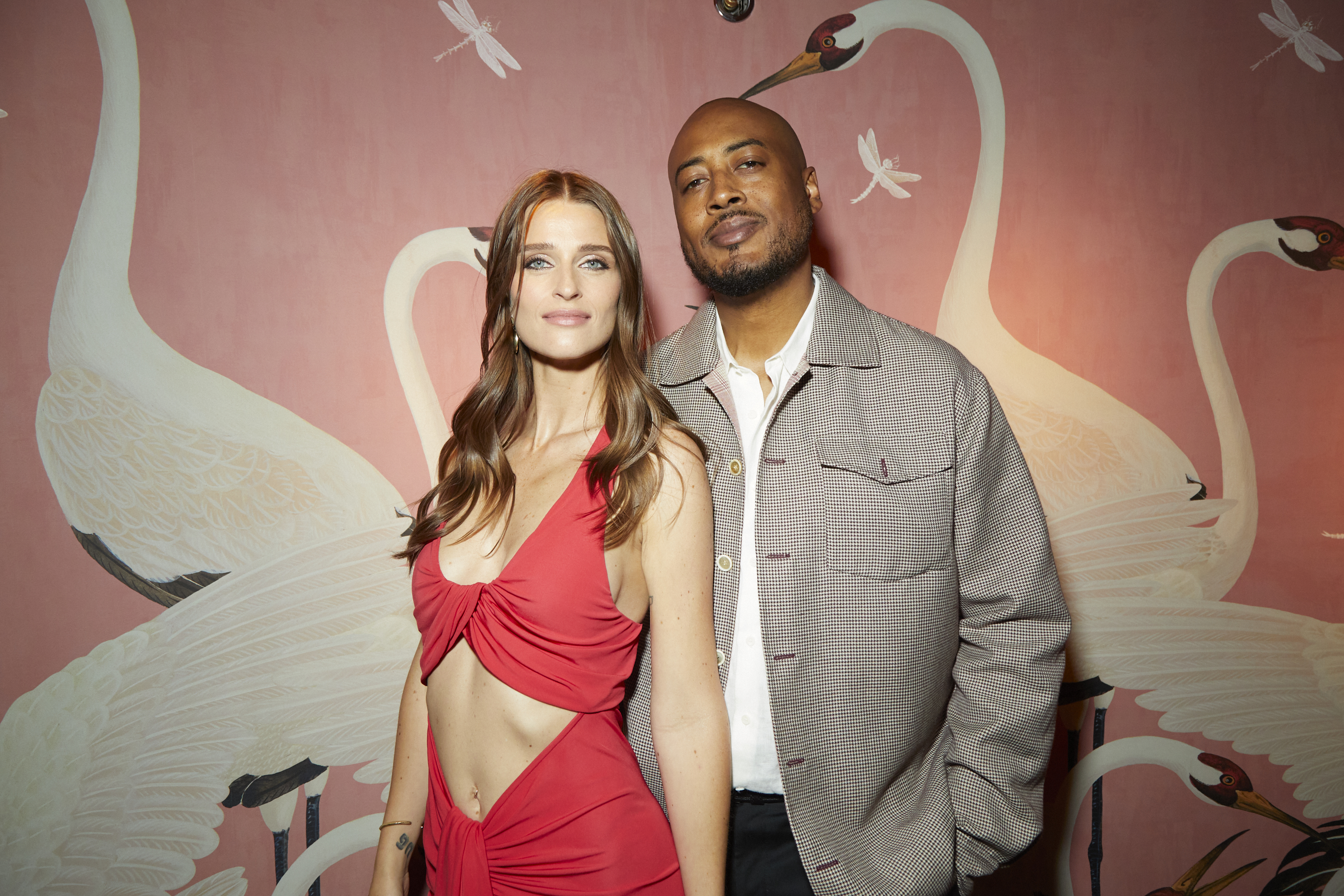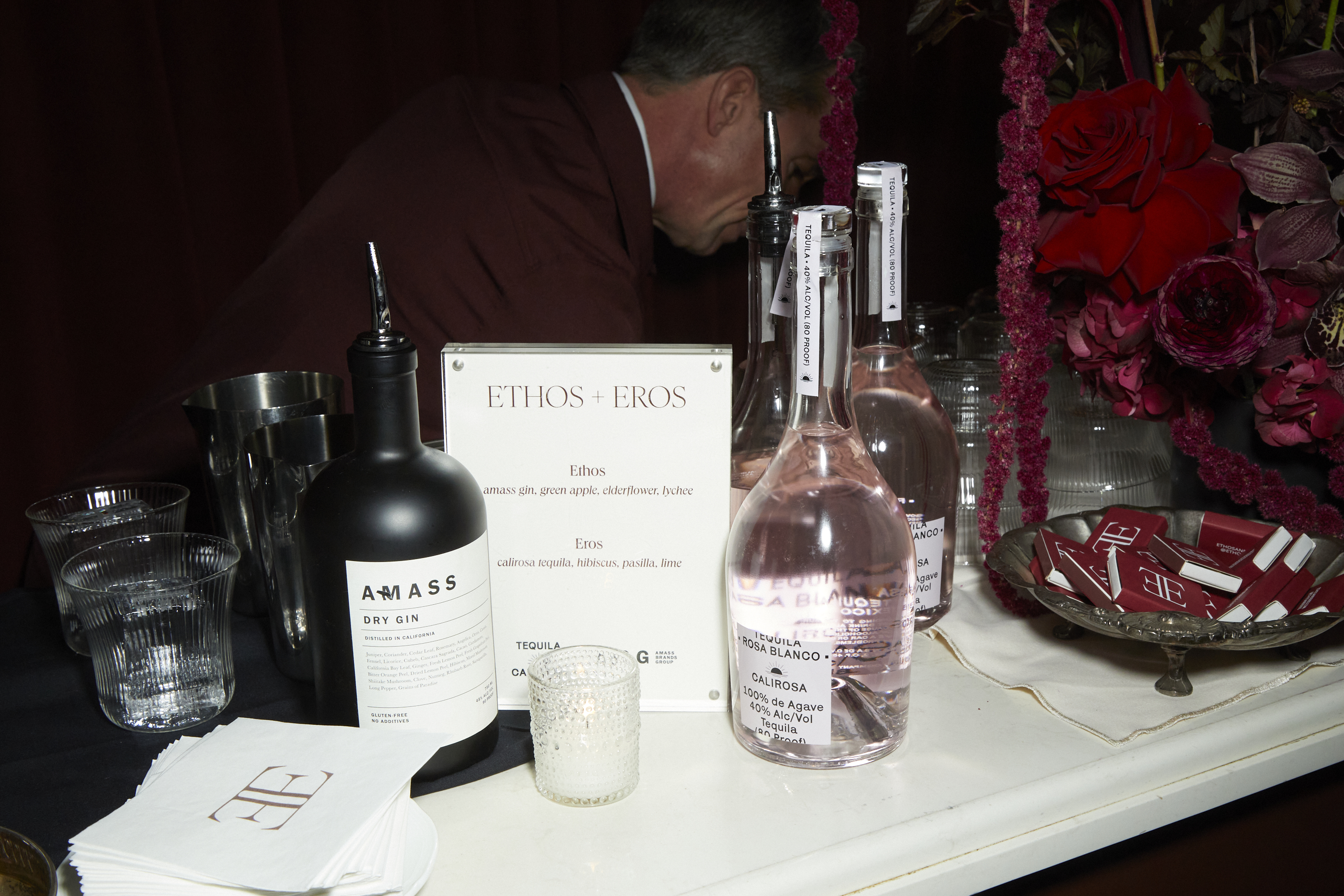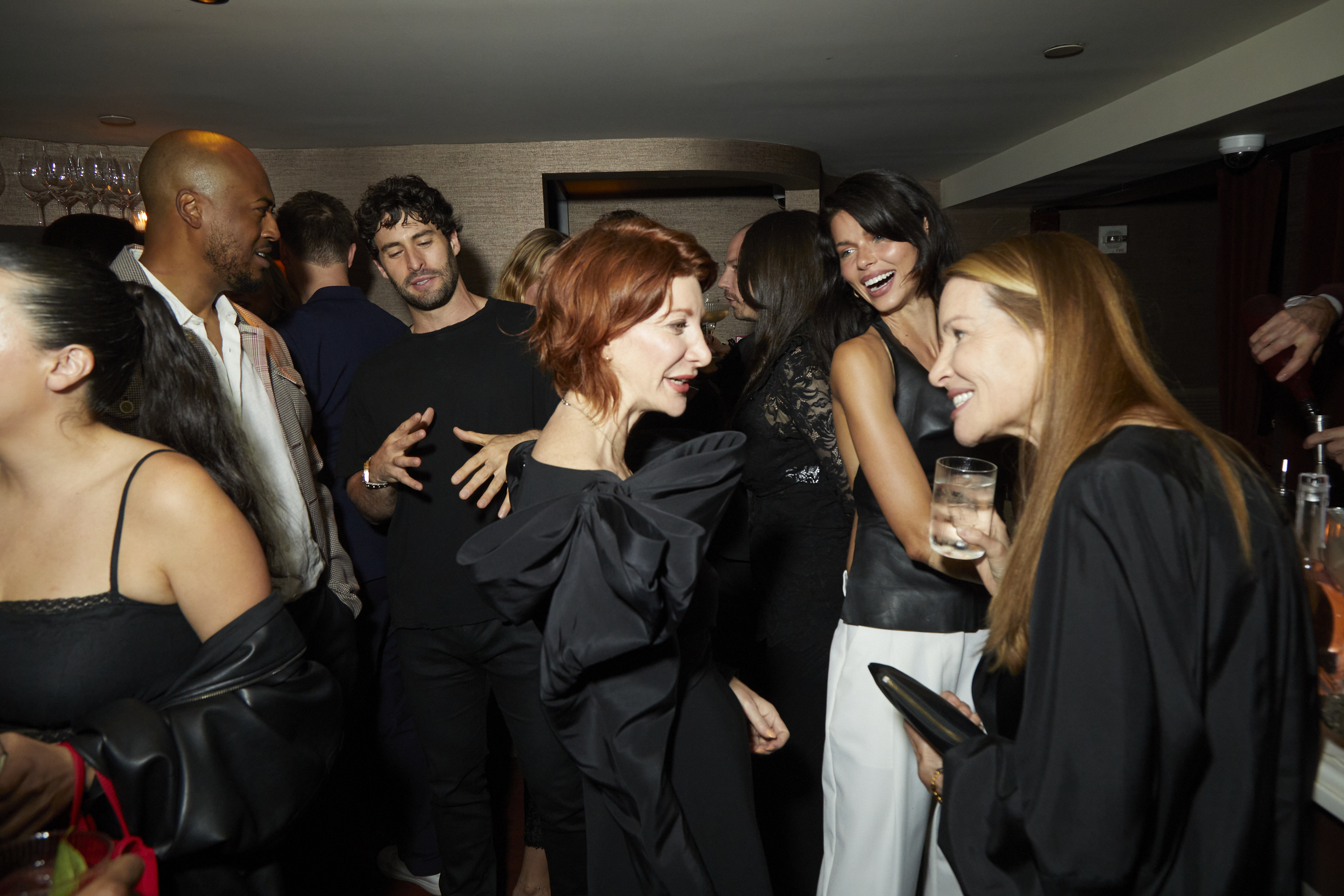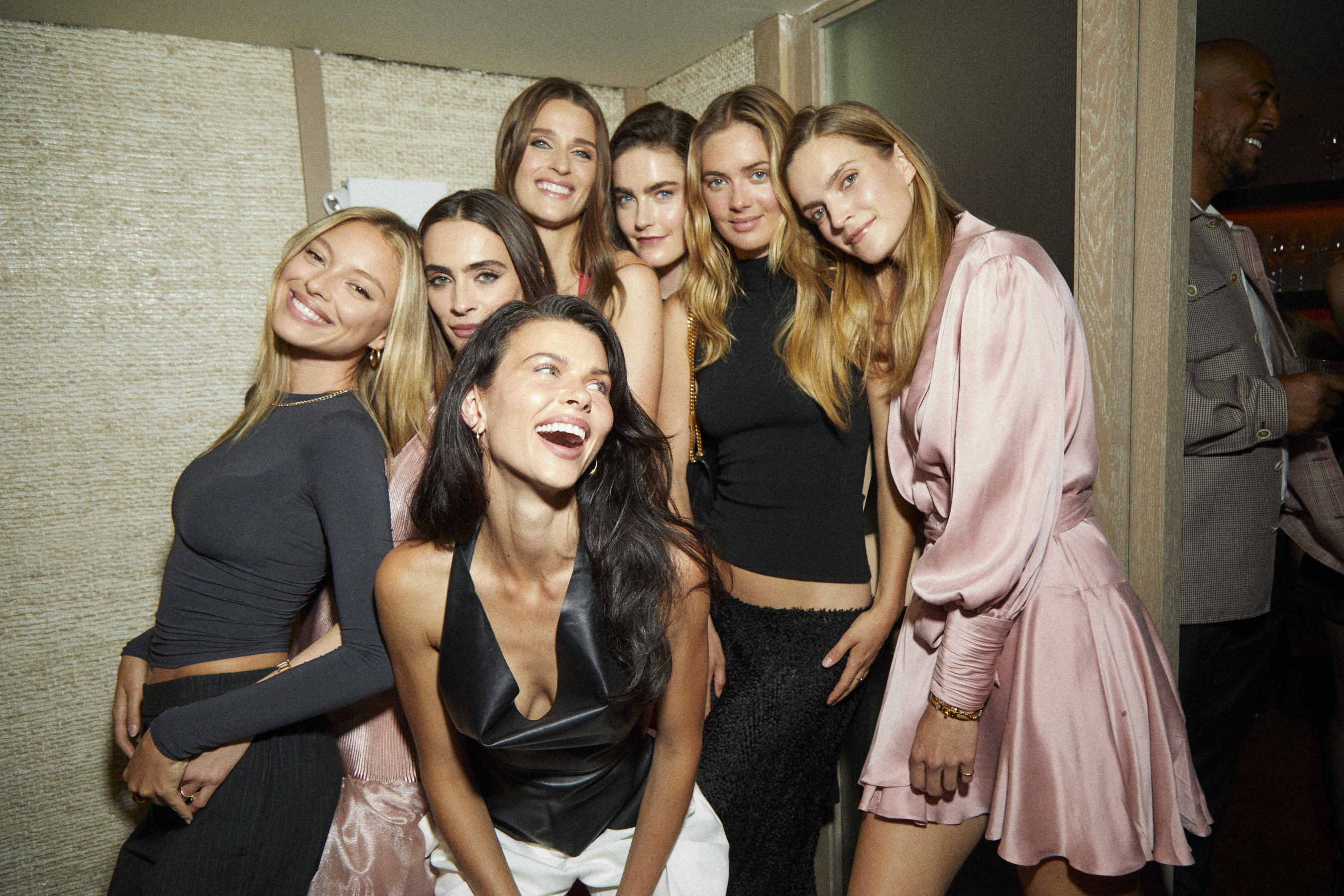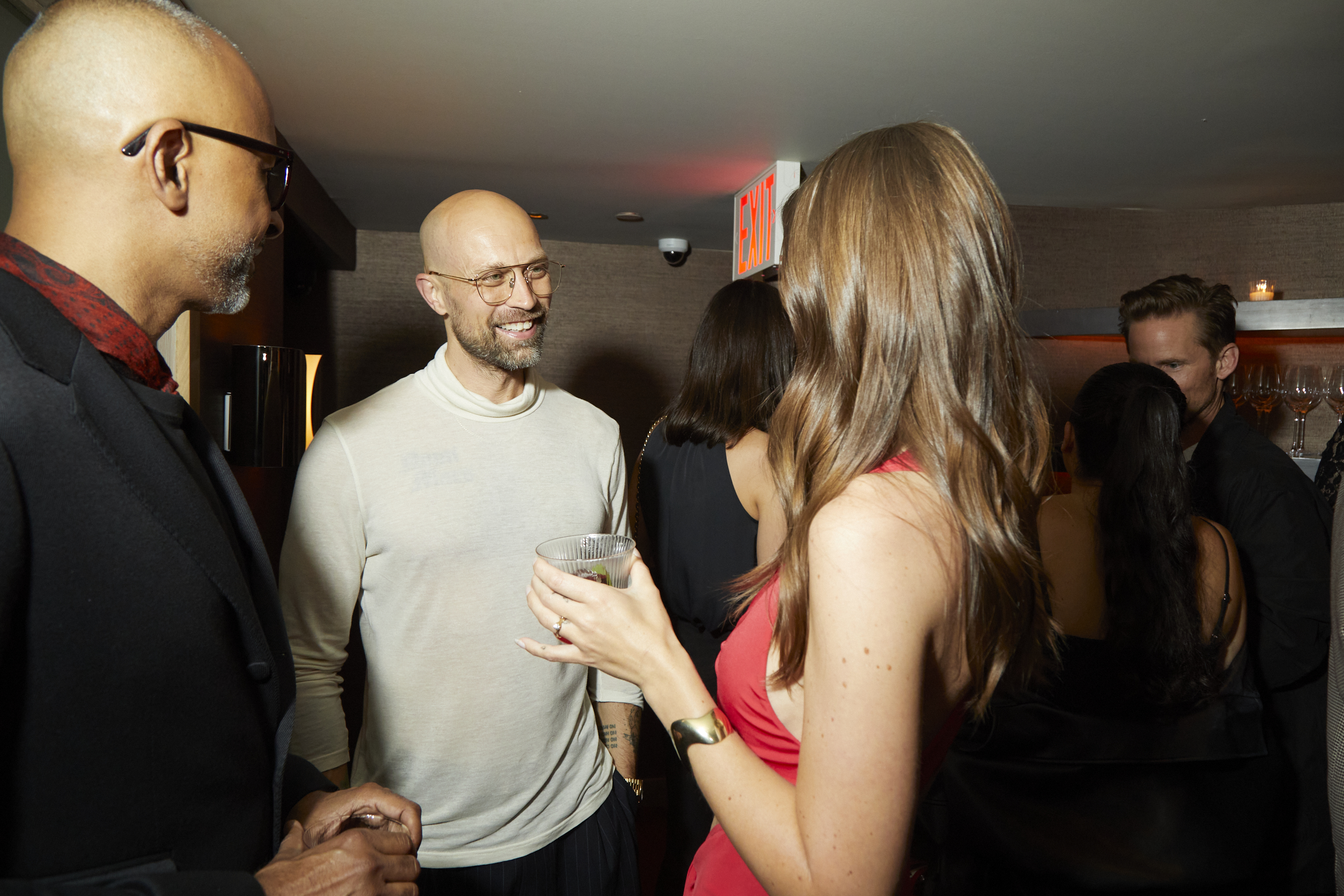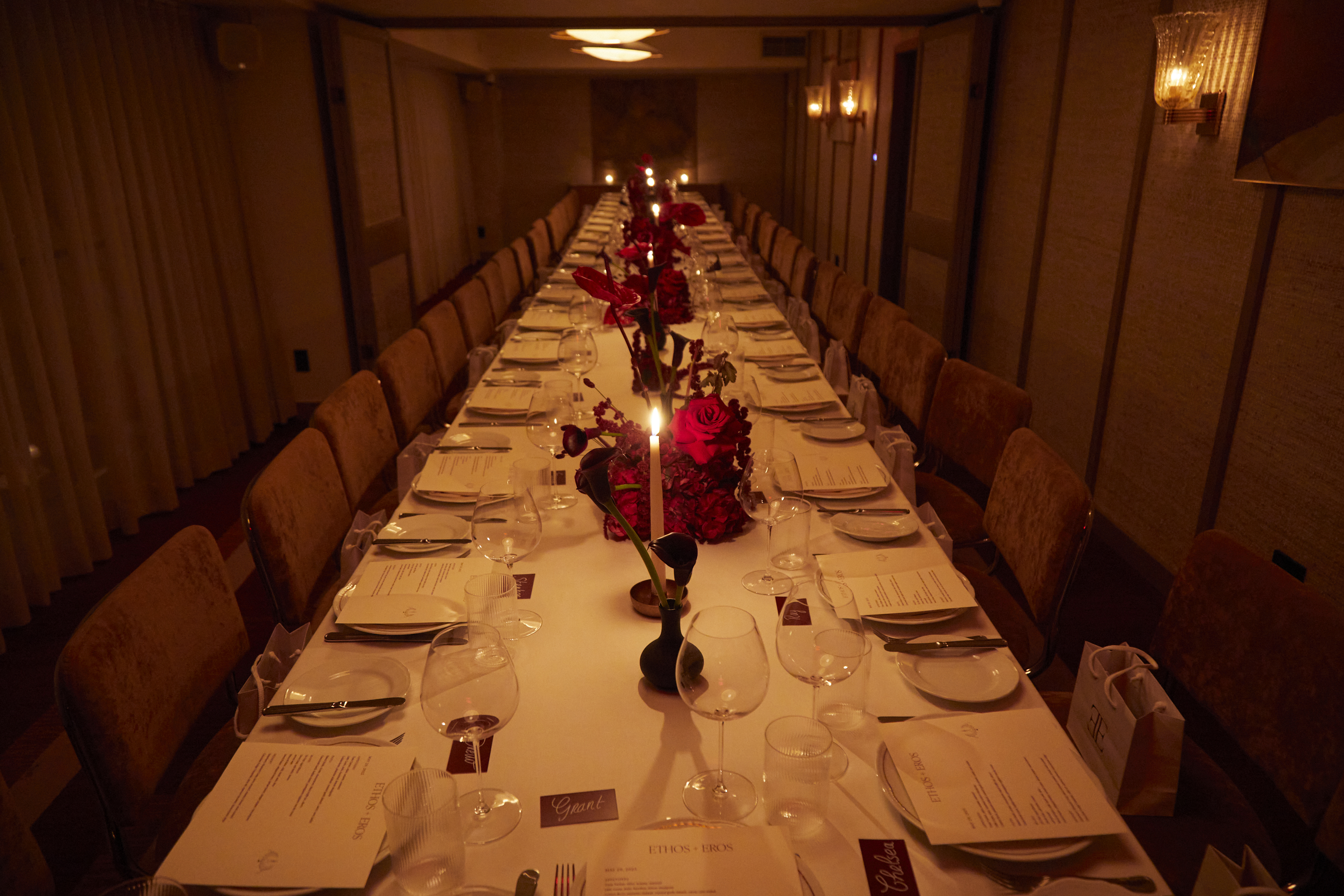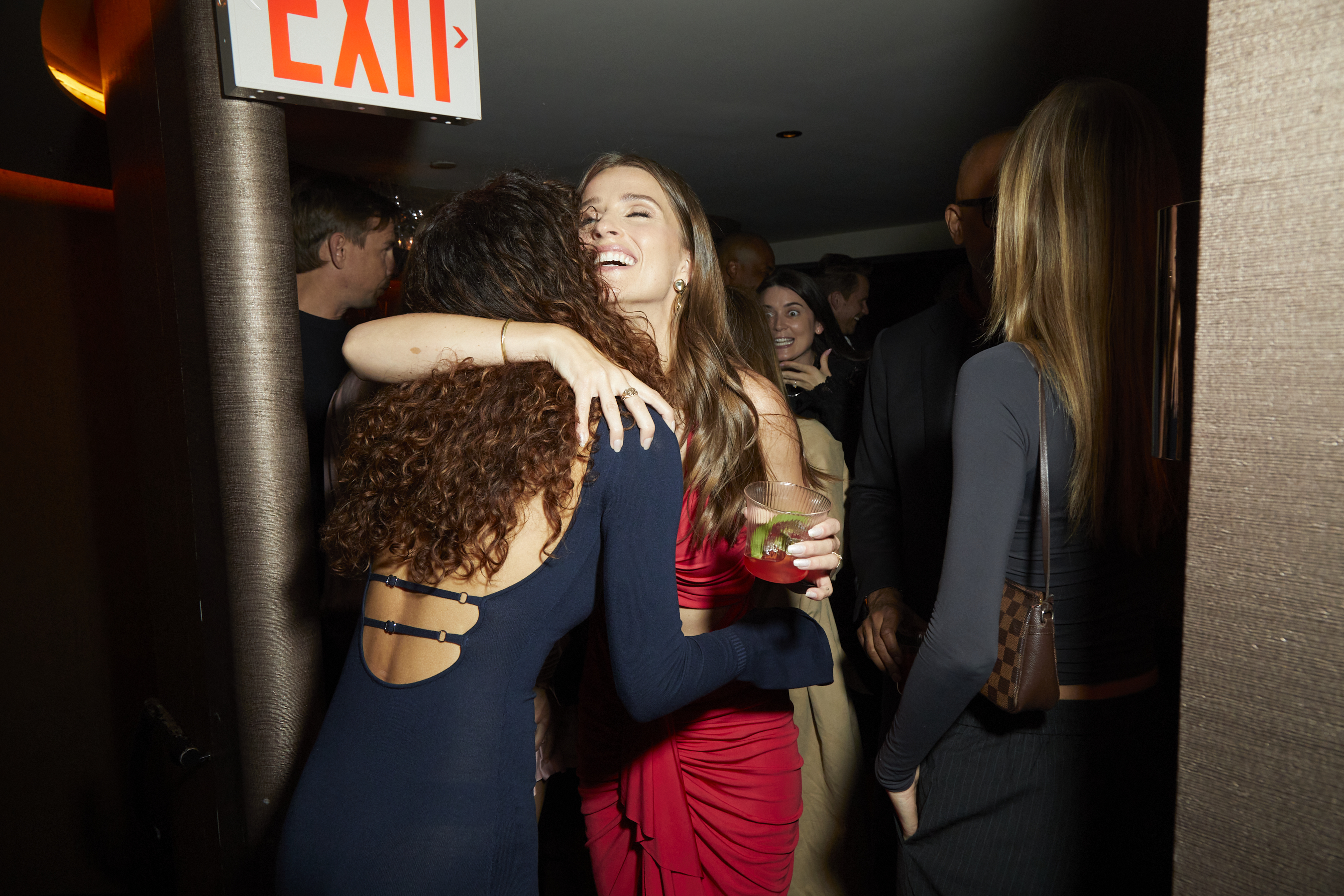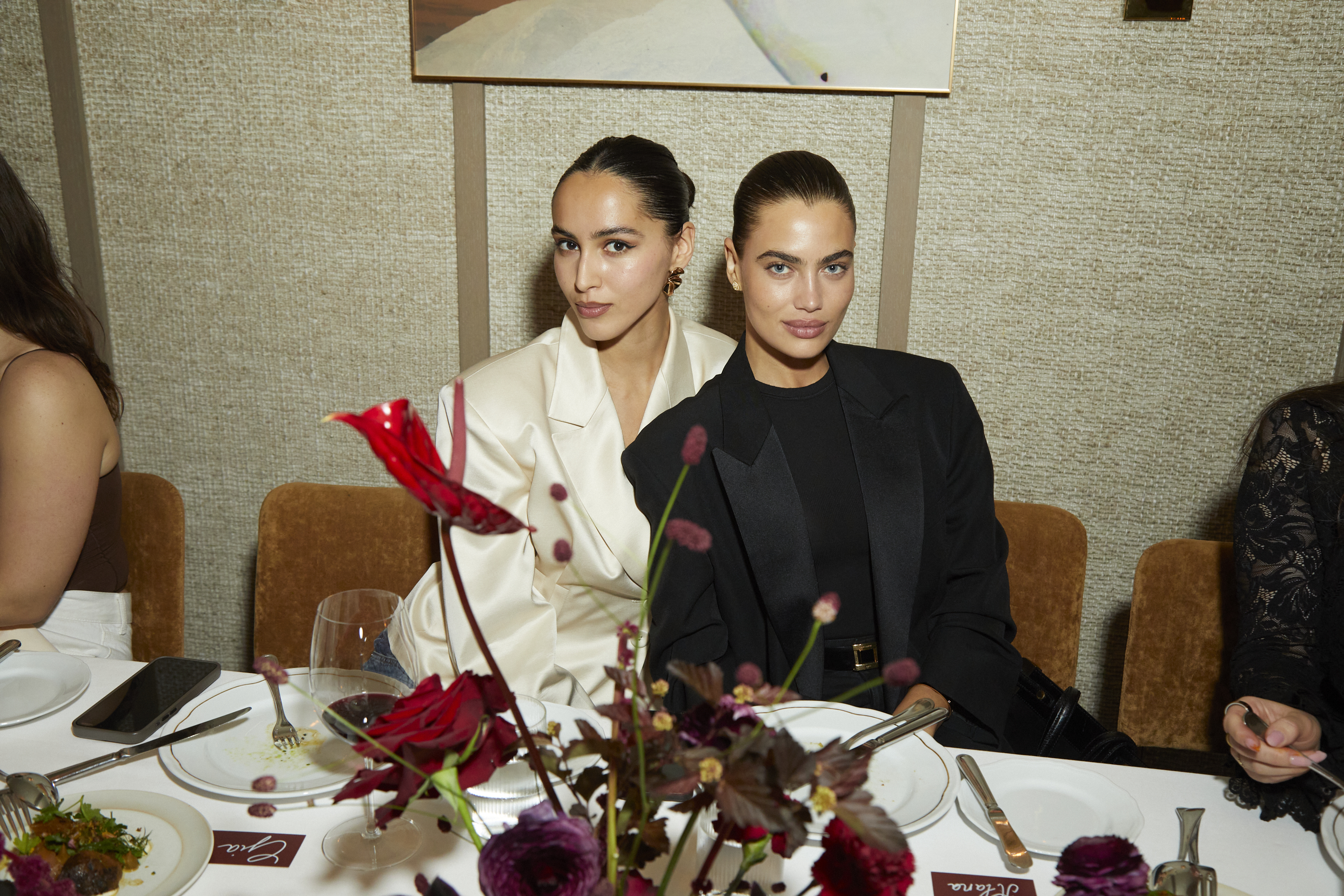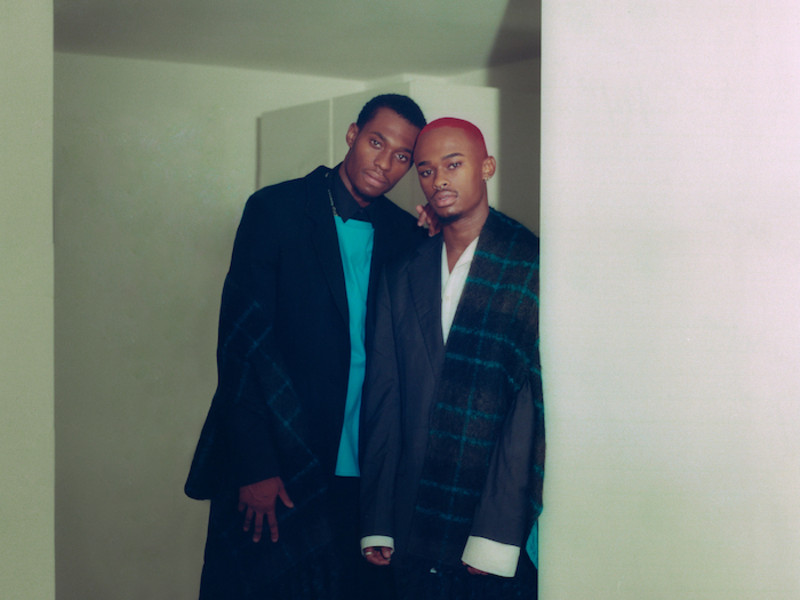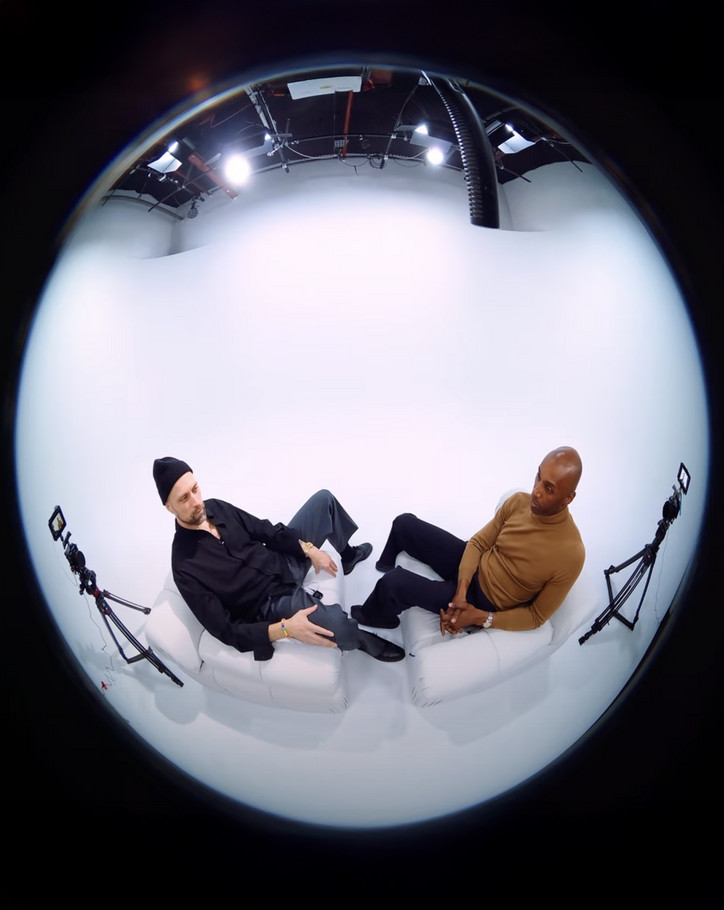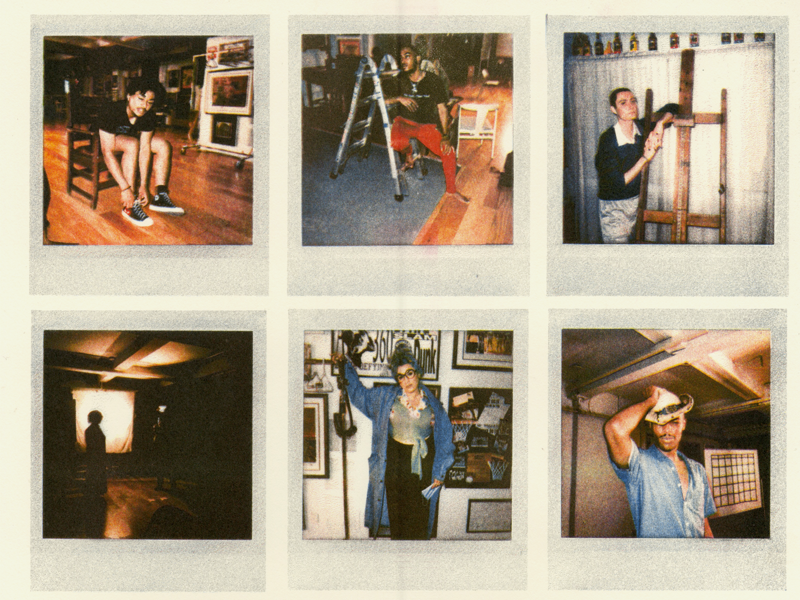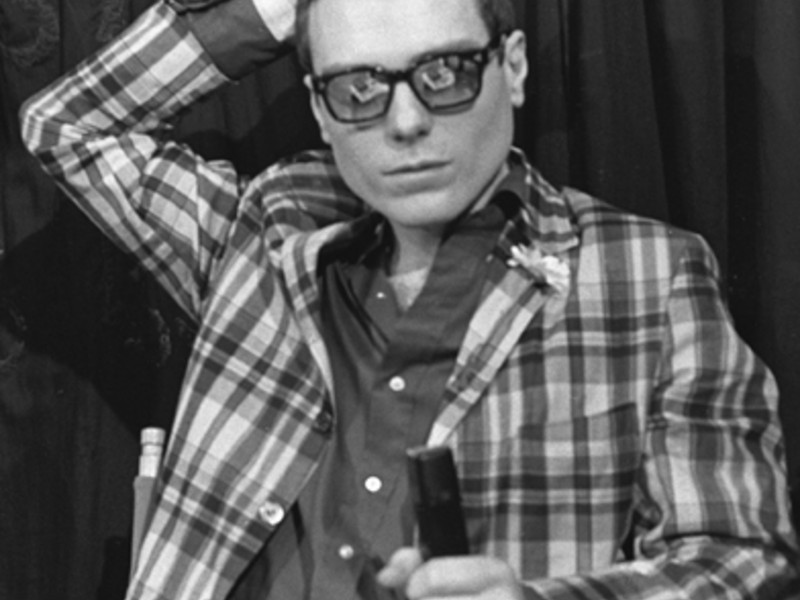Sipping YOLA Mezcal: Wild Agave
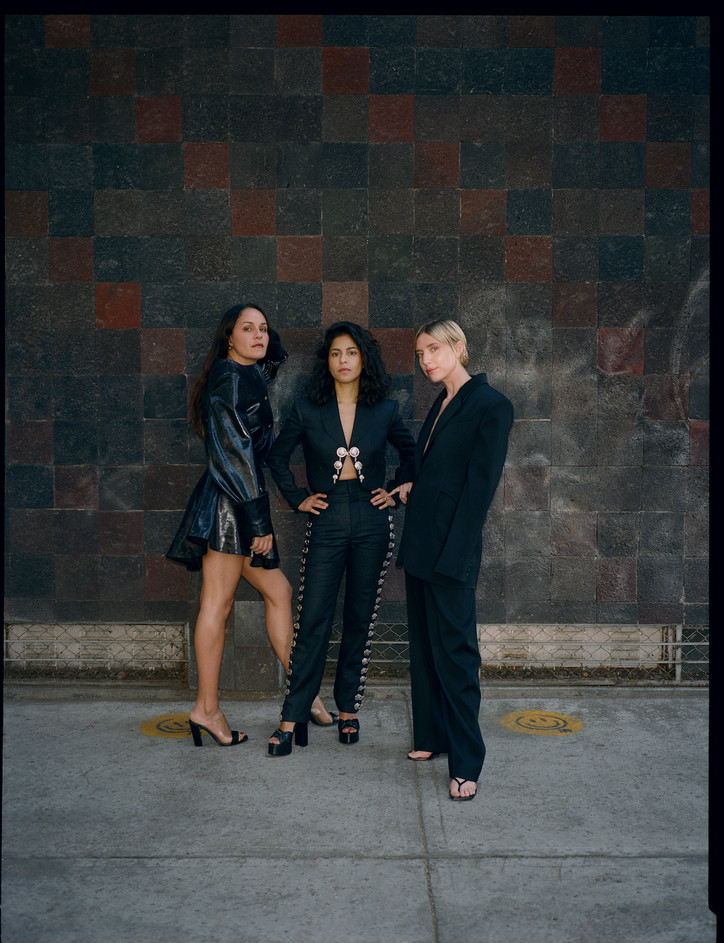
The first transformation of YOLA's iconic bottle was through multidisciplinary artist and fashion designer Barbara Sánchez-Kane's free-hand, bridging moments of remembrance swathed in powerful utterances. "It was very important to me to maintain the fluidity of the drawing – this means the extraction of a loose line sketch that I did with oil sticks. I think at the end, it looks like you're in a place you don't know, but you're familiar with, you know, like when you have this ambiguity of somebody you remember, but you don't know where you remember them from. That's what I want people to see in the bottles, even when the bottle is by itself. I wanted the bottle to give this idea of immersion within nature," Sánchez-Kane explains.
A developing relationship with YOLA, influenced by her dynamic craft, it only made sense that Sánchez-Kane was the first to be tapped for YOLA Mezcal: Wild Agave. "Barbara and I knew each other previously, and I'm a long-time admirer of her work. I always knew that she was someone I wanted to work with, so when we began planning around Wild Edition, and the opportunity to collaborate with an artist came up, I knew immediately that I wanted to get Barbara involved," says Jimenez. Celebrating this exciting launch, YOLA showcased the new bottle rendition among friends in ZONA MACO, Mexico City.
In an exclusive interview with office, YOLA founders Yola Jimenez, Lykke Li, and Gina Correll discuss uplifting artists and offerings of social change.
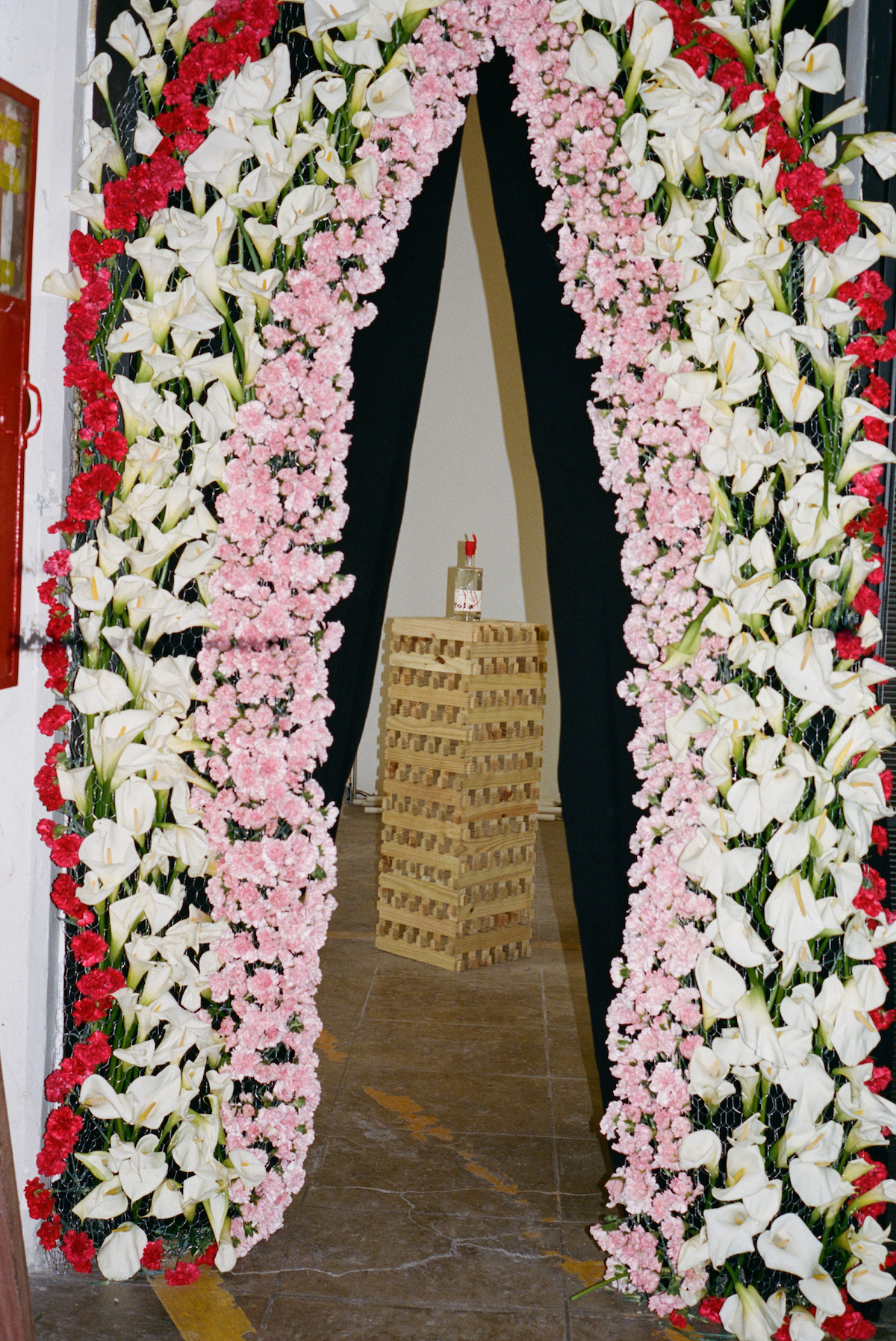
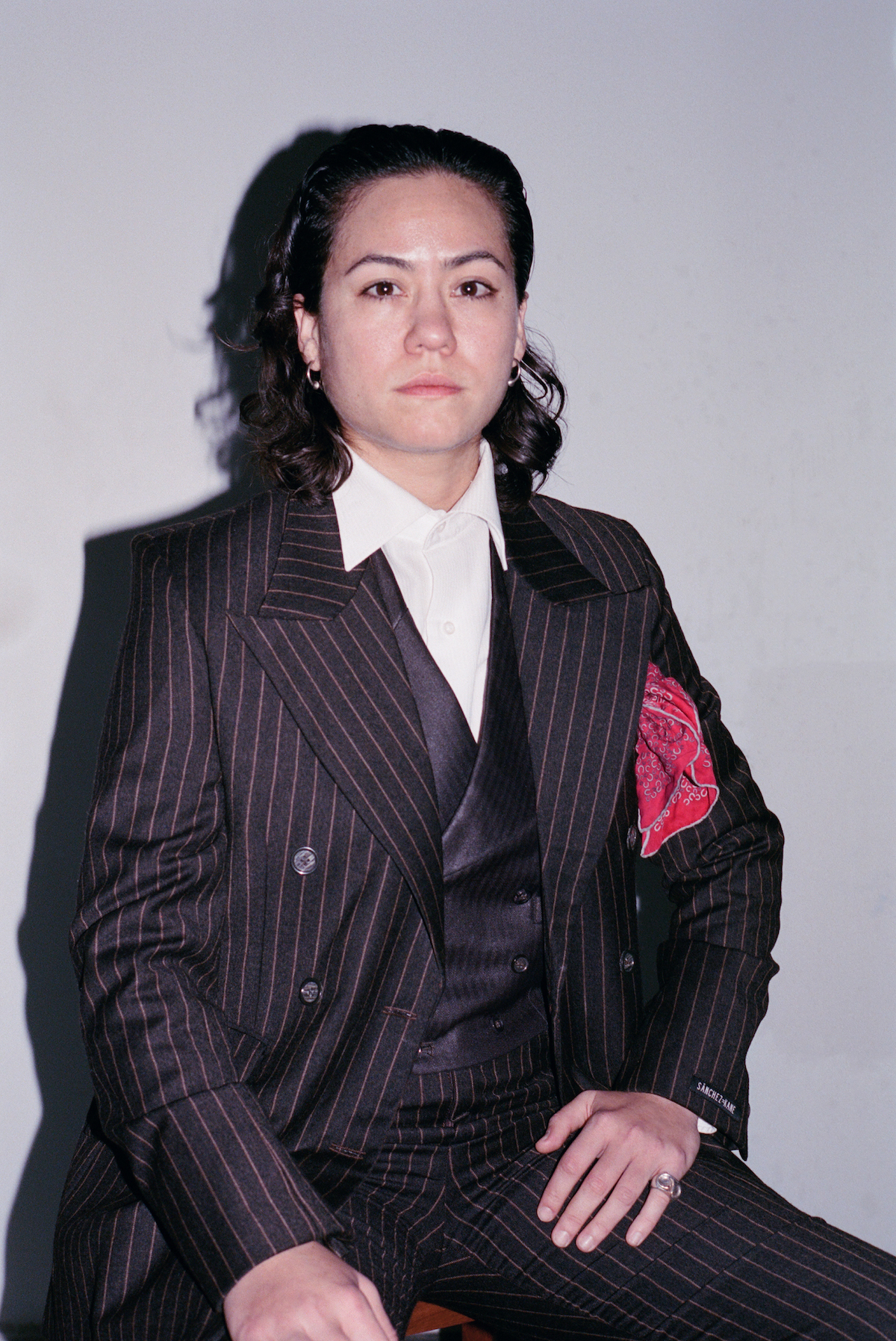
Can you tell me a little about your relationship with mezcal?
Lykke — Mezcal represents my lust for life and celebration. Whenever I need a pick me up, or I want to get transported into a high vibration place, I have some.
Gina — I met Yola, and I met mezcal, and they both changed my life in the most expansive way. Mezcal is magic...bonding and opening people and is a pure exhilarating natural high. It's so complex; it has the range and elegance of the finest wine and the simplicity and common quality of the bottom of the barrel whiskey – two things I love deeply. An earth juice that takes you somewhere else. Yola has these qualities as well, both cosmic and grounded.
Yola — My relationship with mezcal started early on in my life – some of my very early memories are of being at my grandparents' house and seeing my grandfather go and come back with bottles of mezcal that he'd made. Then, as I got a little older, he would take me with him to see the town where he had a little farm where he was making mezcal and where he had friends that made it. He grew up in the town next to it, and he would explain the importance of mezcal for that region and for himself and how it was something that he felt was essential to the way Oaxacan Indigenous communities interacted as a family and with friends and how it's something that they've been making for hundreds of years and very much part of their everyday life. He would often have friends over who were also from different regions of Oaxaca who now lived in Oaxaca city, and they would drink mezcal and chat, so it has always had a special connection to not just where I come from, but this idea of happiness and connection and interaction and, for me, a great fondness to one of the most important people in my life.
What's the ethos behind YOLA?
Yola, Gina & Lykke — Strong women, Strong drink – encompassing our mission for progress, equality, freedom, and a celebratory spirit.
An essential aspect of YOLA is that you are stimulating Oaxacan women and shedding light on the power of women and their impact during the process of creating mezcal. Since your brand is run and bottled by women, can you speak to YOLA's mission?
Lykke — It's a natural continuation of our friendship and how we like to treat each other and all the women around us, we always want to empower and give respect and credit where it's due. I want our success to be circular.
Gina — It happened naturally and was instinctual, the mission was bred out of YOLA's vision for a brighter future for Oaxacans and our bond as women and what we could do to expand on it.
Yola — For me, I always had the connections of Mexico being my place of birth and my grandfather – because of those two things, the ethos of the brand has always been how we can make this something that works for people in Oaxaca and how we can make it something that works for their everyday life – specifically women. It was after my grandfather died when I started working on this and trying to bring it to Mexico City that I was working with the people that he had worked with, and I discovered that women were really such a huge piece of every part of the process of the production of mezcal and how integral it was for every member of the family, yet they were rarely recognized. You would have to speak to one person who was usually the elder member of the family for any final decisions, and that became something that I wanted to try to change – I wanted to include every possible woman and make them feel like they had a name and a position, and they were part of the process, both unofficially, and officially. So we started implementing, trying to employ as many women as possible, and would pay them directly – that became our main focus. We asked ourselves how we could really include women in positions of power and change something that had been structured in a different way for so long. From that moment on, our mission has been to create something that is culturally inclusive and respectful, primarily to women, but also to everyone involved, and from that to create a product that can be exported in a way that is sustainable and is something that we feel proud of.
While the bottles are being transformed and Mexican culture continues to be recognized, not through a monolithic lens, YOLA is donating a portion of sales for women and young girls in Oaxaca. Can you speak about this cause and how it came about in this way?
Lykke — We want to honor this sacred tradition and its roots, so this was the most obvious choice. These young girls are our future.
Gina — We have always found ways to give back throughout the entirety of the brand's life, it's innate to our origins, and this is just an extension of how we've chosen to work within the realm of a for-profit commercial business. Mezcal is such an important aspect of Oaxacan life, and this is a way to recognize that significance.
Yola — With the launch of our first wild addition, we wanted to focus on having a small production and making most of the profits go to specific costs in Oaxaca – that is close to our heart. As I mentioned in the last question, creating job opportunities for women in Oaxaca is our main focus, and I think it provides a big difference. We are firm believers in not having this version of charity that, but to create job opportunities and equality and to provide a sense of pride and dignity, that comes with showing someone that you value their work and their time and show these Indigenous women that their time is of the same importance as a man or as a foreign product or, in Mexico, as a white person's time. So we believe in equal and just pay for women's work. We want to create and help support more opportunities for situations like this to happen in Mexico, not only through work but through education and healthcare systems. We're going to work with different organizations to do this, and we will also continue to have a percentage of our profits from all of our special editions go to various associations in Oaxaca that support different aspects of education, safety, and/or health care for women and education for younger women in Oaxaca. We want to grow our company there and have a Palenque, which is a farm where you make mezcal, be something that not only produces mezcal but is inclusive to many other aspects of interest for the women there – different things that they choose they want to be part of such as gastronomy, educational lectures or other programs. Essentially, our main goal is that we're able to grow not only in the number of women that can be part of the brand but in the number of different activities they can engage in besides just work and mezcal production methods.
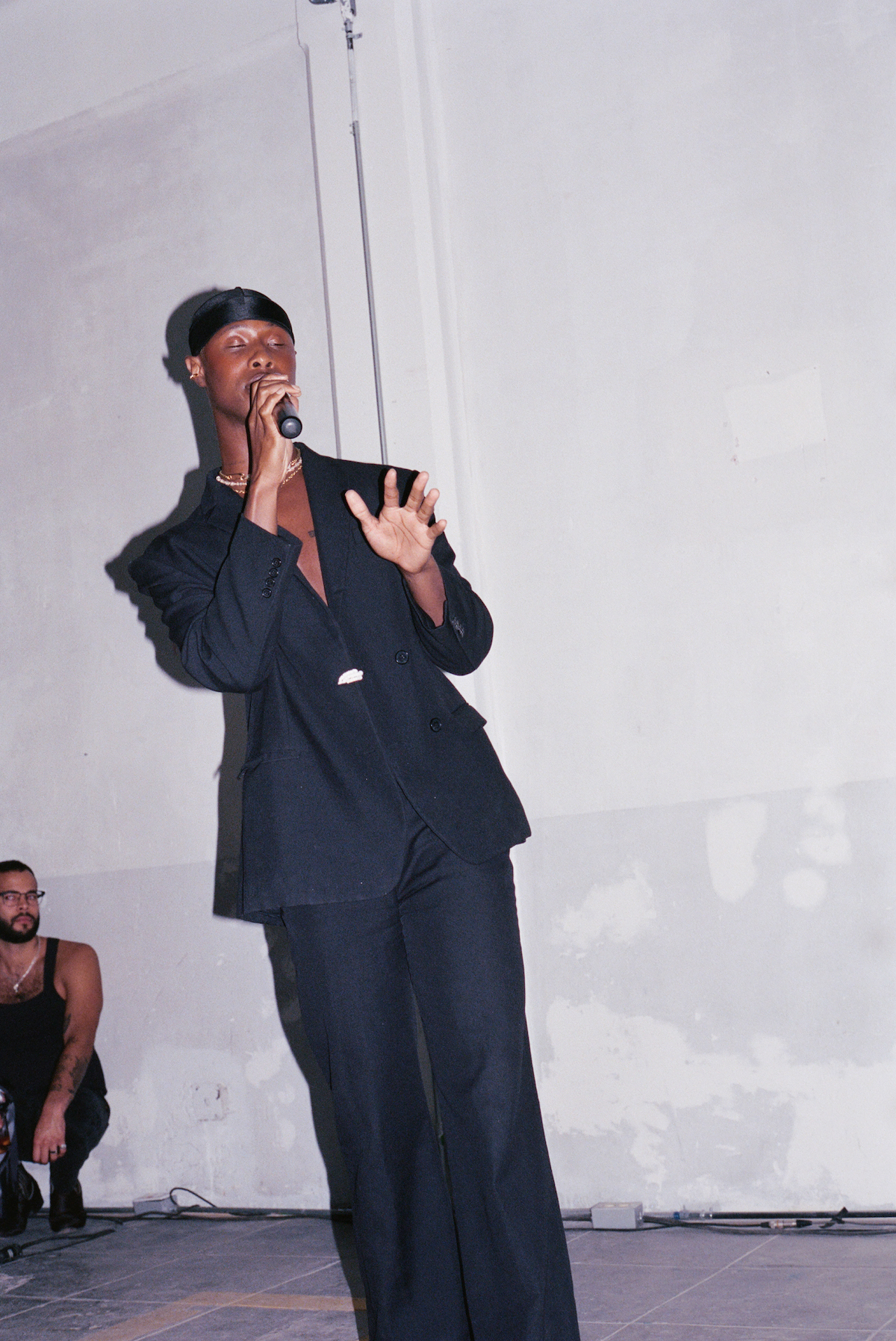
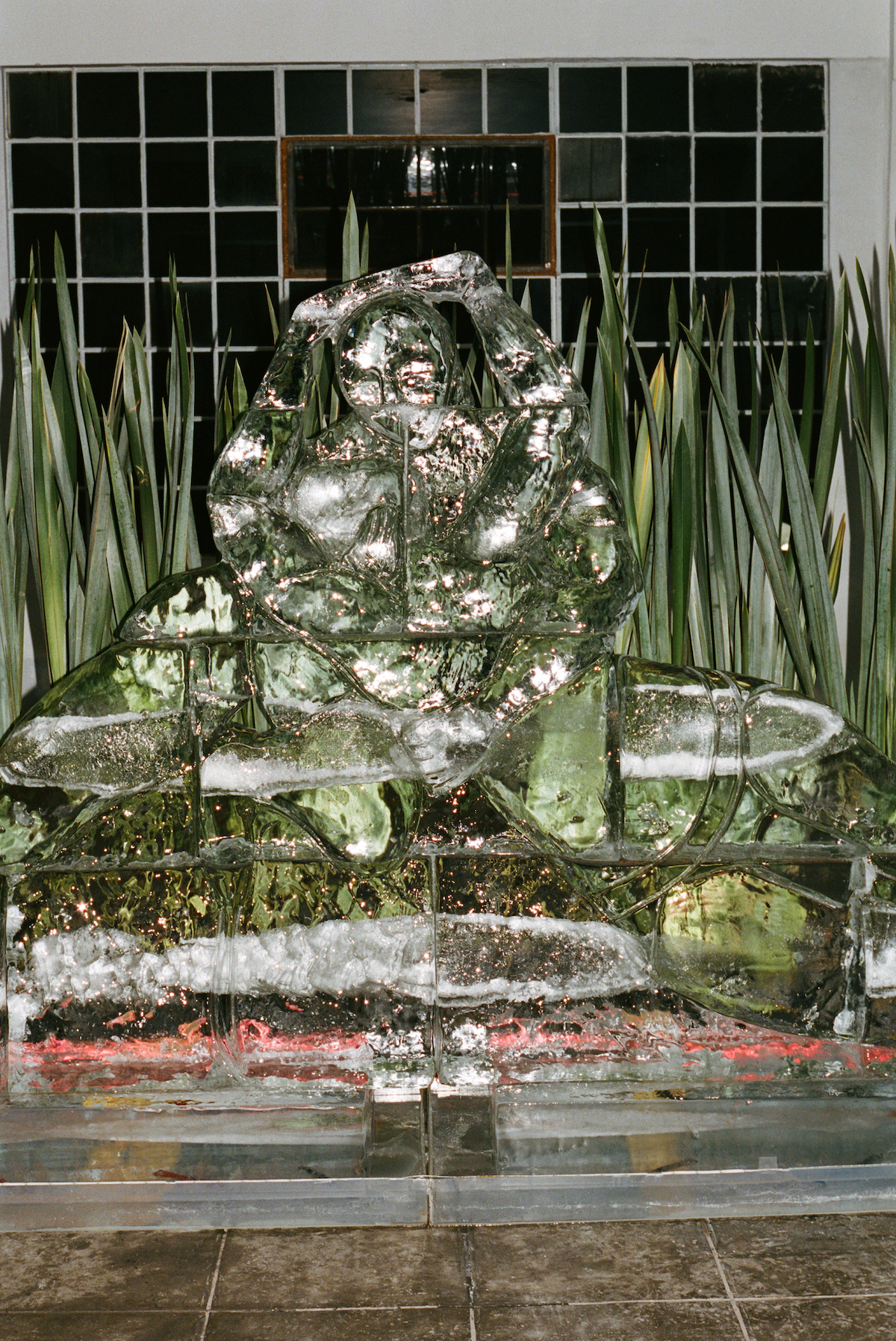
Wild Edition centers the power of art, allowing for connections to happen, visualized in reimagined bottles. These collaborations speak to the expansive landscape of Mexican culture. How has it been working with Barbara Sánchez-Kane, and what can we expect in the upcoming bottle partnerships?
I think it's wonderful that Mexican culture continues to be recognized and is having such a big recognition around the world. I think it's very exciting – but being Mexican is also something that I hope is done with respect and something that won't be a trend or a temporary fad. I feel that growing up in Mexico in the 90s, the things that were considered very Mexican or very Indigenous were valued in the country, mezcal being a great example of it – tequila, which is a type of mezcal, became famous internationally because it was done in the white part of Mexico in Guadalajara, and mezcal, which had been made for longer never had any value because it was done by Indigenous hands. So I hope that this new recognition focuses on the value and work of people that haven't been recognized before, particularly Indigenous women. So I am very much looking forward to and am excited to be part of this recognition of that work and that long tradition, and how, hopefully, it will be in the forefront of a whole new generation of women that are proud of their work and that it can expose it so that it's recognized and can help them to receive fair pay and respect for it.
Mexico has always had a very rich culture and many different forms of art, and the power of art feels very tangible, too – and now there is this whole new generation of artists that are being recognized internationally. These young female artists are doing wonderful work, and we really want to focus on that with the Wild Edition and the various versions of that through different collaborations while also trying to express a new and unique idea of what Mexican female culture is – something that, for us, is a lot more complex and interesting and we're able to talk about gender notions in a dynamic way, and I feel that Barbara Sánchez Kane's work really speaks about that. Barbara has this idea of a strong woman and the Mexican macho and the sentiment behind that, and she portrays it through her art in such a powerful and direct way. We really wanted to communicate the same message as Barbara, and by collaborating with her, we were able to speak about a new version of a Mexican woman that can combine all of these aspects – a woman who is strong and dynamic and sensitive but also very Mexican and vibrant and wild. Barbara's approach to her design was very, very beautiful and showed how everything in life is always a work in progress. Everything is a sketch that we keep working on and returning to, and that sketch is ourselves. As women, through history, we've had very limited time and space to draw that sketch, so now we're trying to find different ways that can increase that canvas and make it about all of the things that we are at once. This is something we will continue to do as well – we won't have a static period or feed into this idea that a woman can be bought. I'm very proud of what she did with the bottle and very, very excited about the collaboration, and in the future, we want to work with people in different industries that are also interested in this idea of womanhood and wildness because what Gina, Lykke and I value the most is the collaboration with this very talented group of women that we've been able to work with since the beginning of the brand. We see this as a great opportunity to expand on the many different aspects and the richness of the culture that Mexico has – both culinary and artistic – so we are very excited to grow these programs and collaborations and to have them based in Mexico and to involve the women of Oaxaca as much as possible but to also make them International. We want this to be an example of the many different possibilities that exist within collaboration and to use it as an opportunity to expand the dialogue of what Mexico is and can be and to change the dialogue of a developing country and a country torn apart by violence and corruption to a dynamic country that's based on beauty and love and hope.
